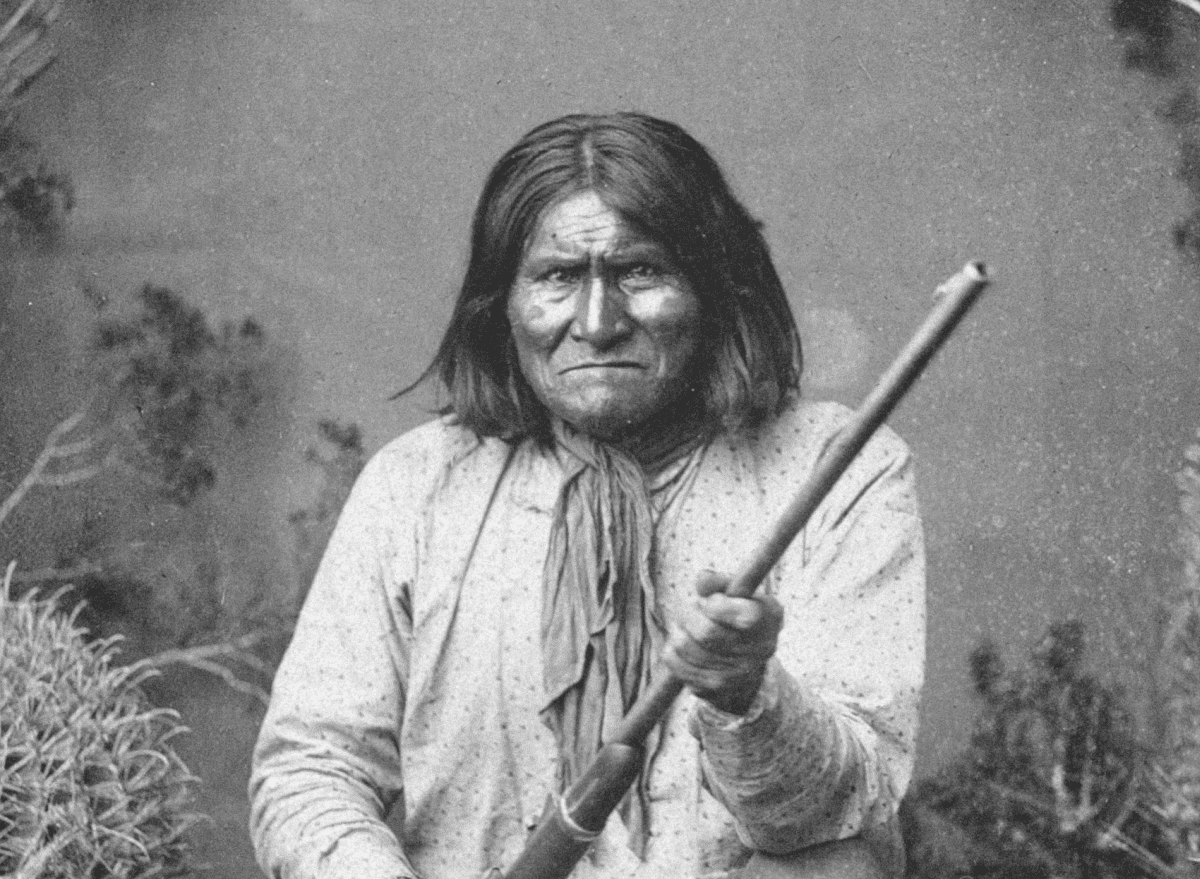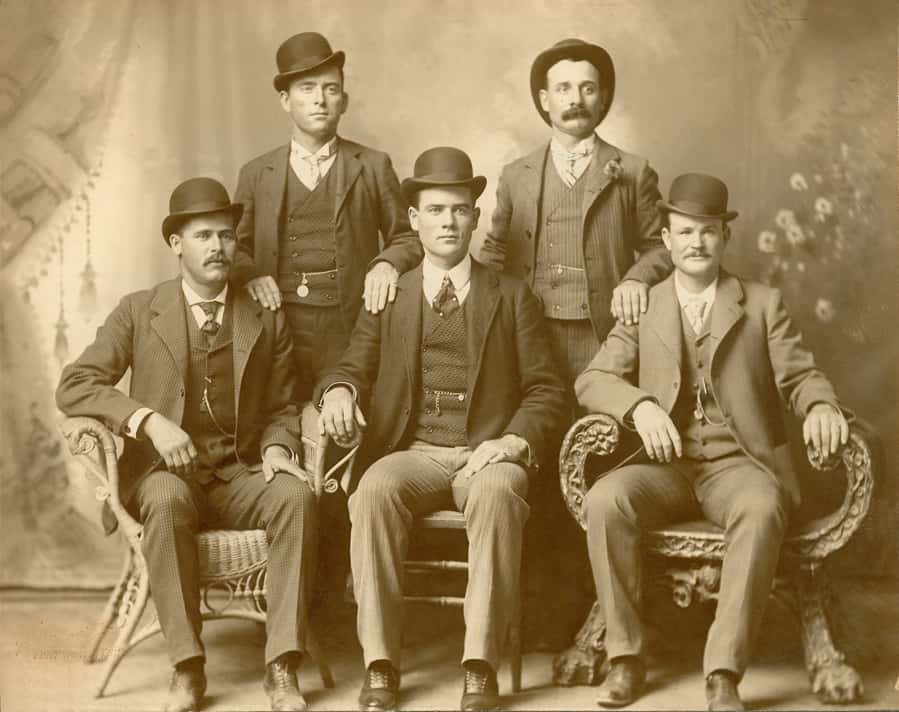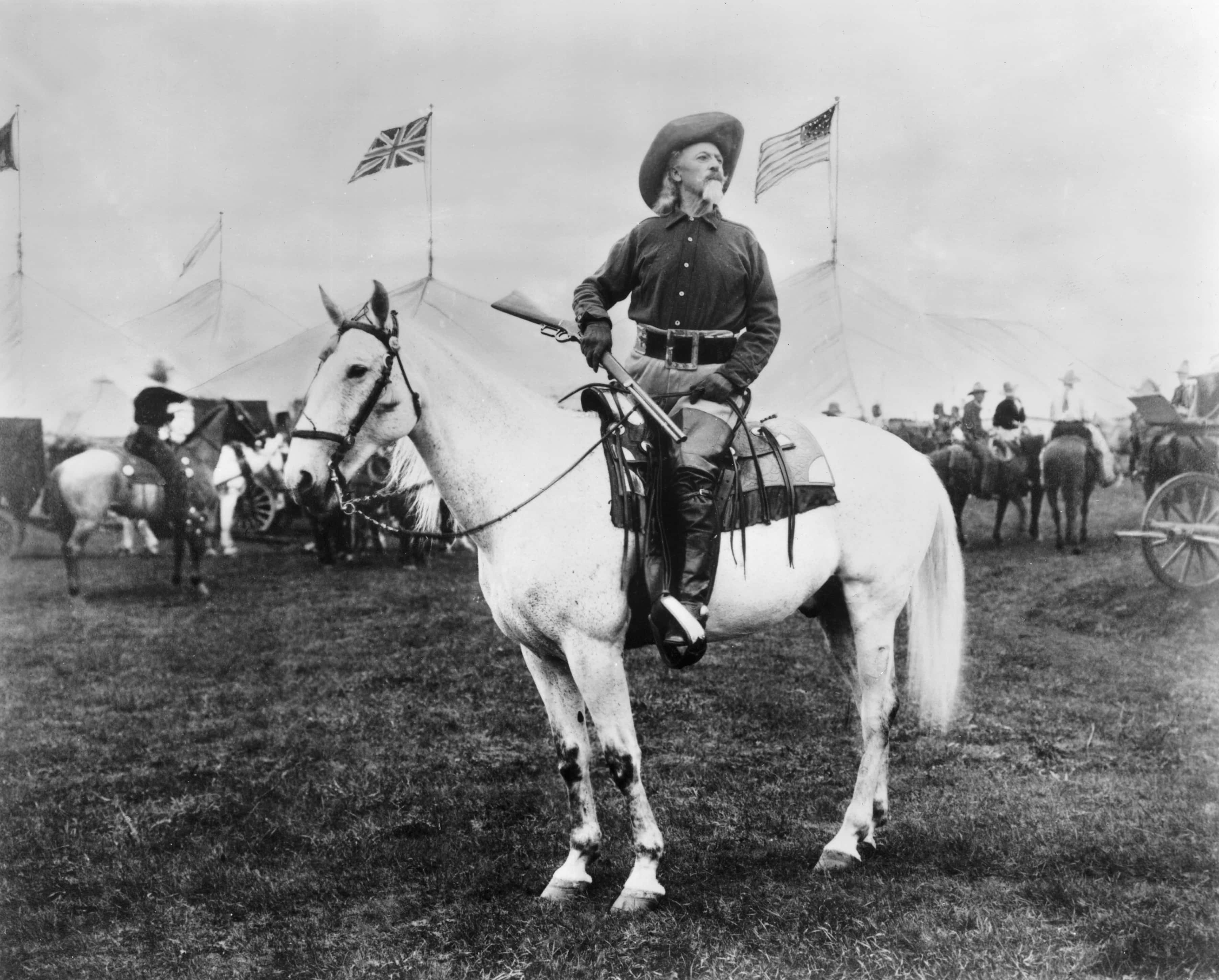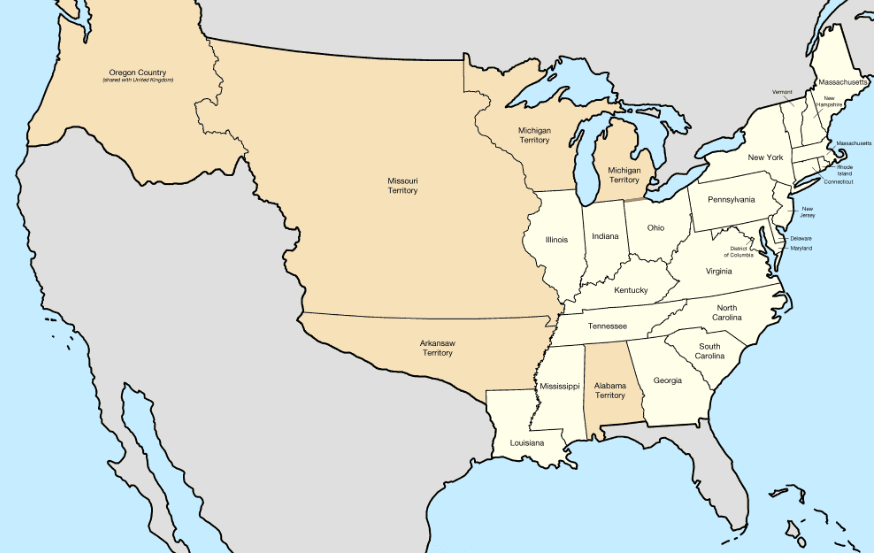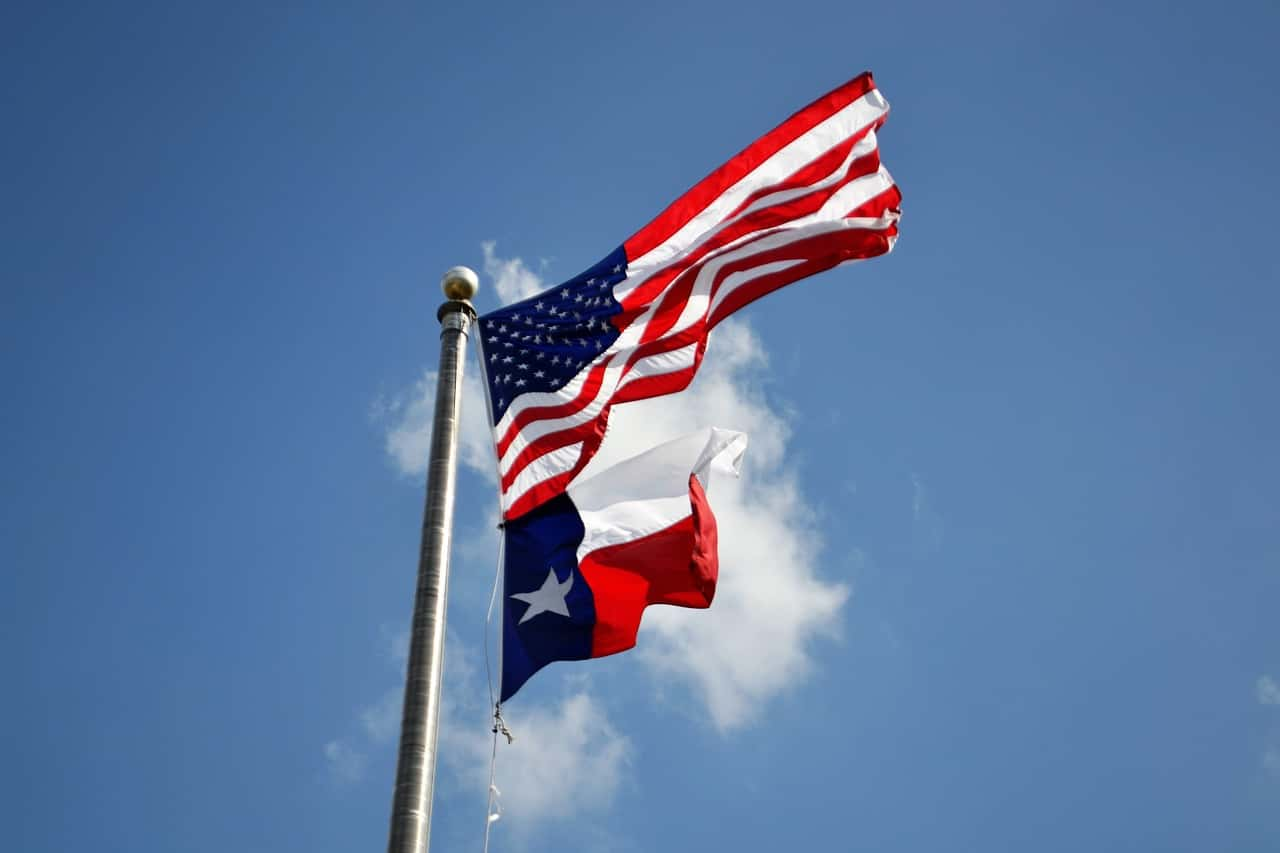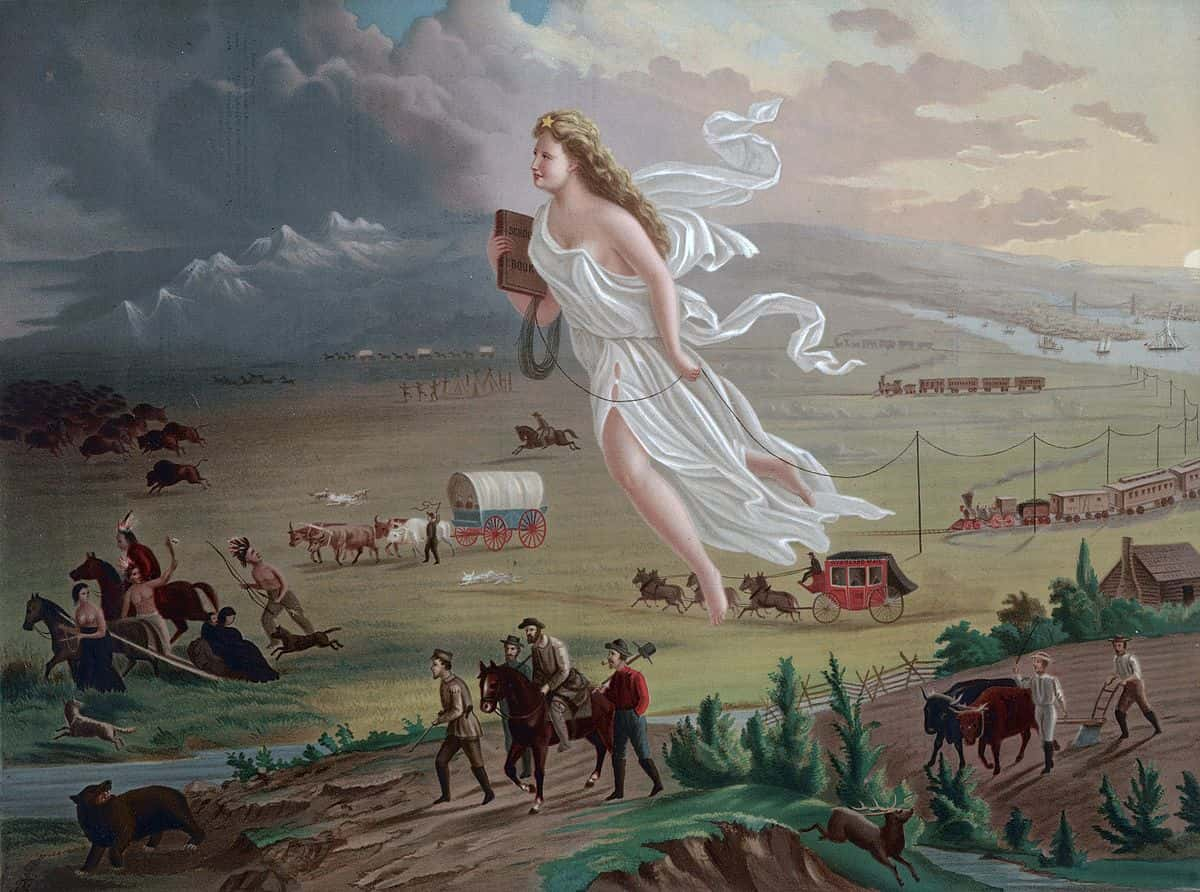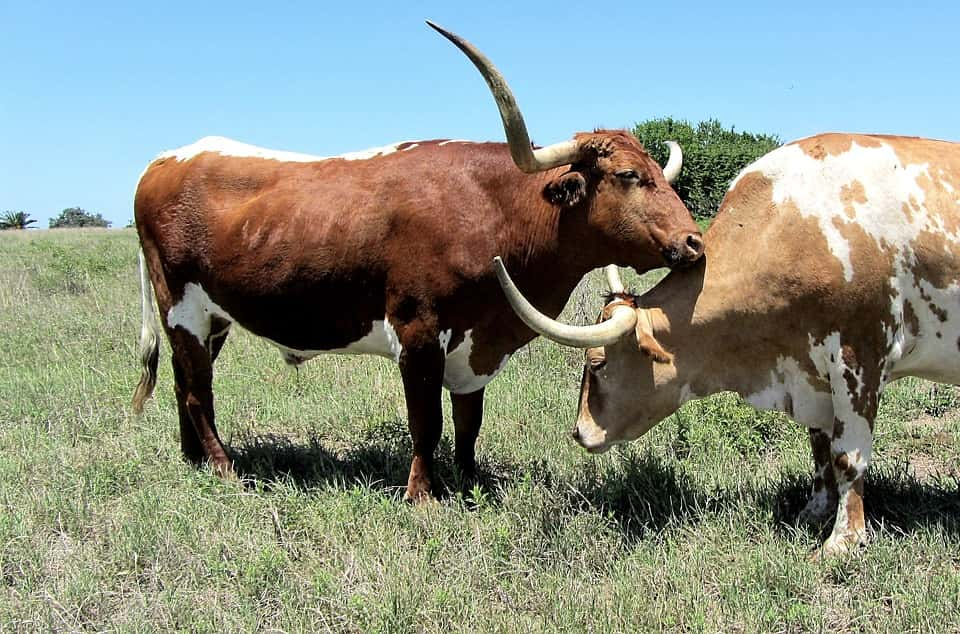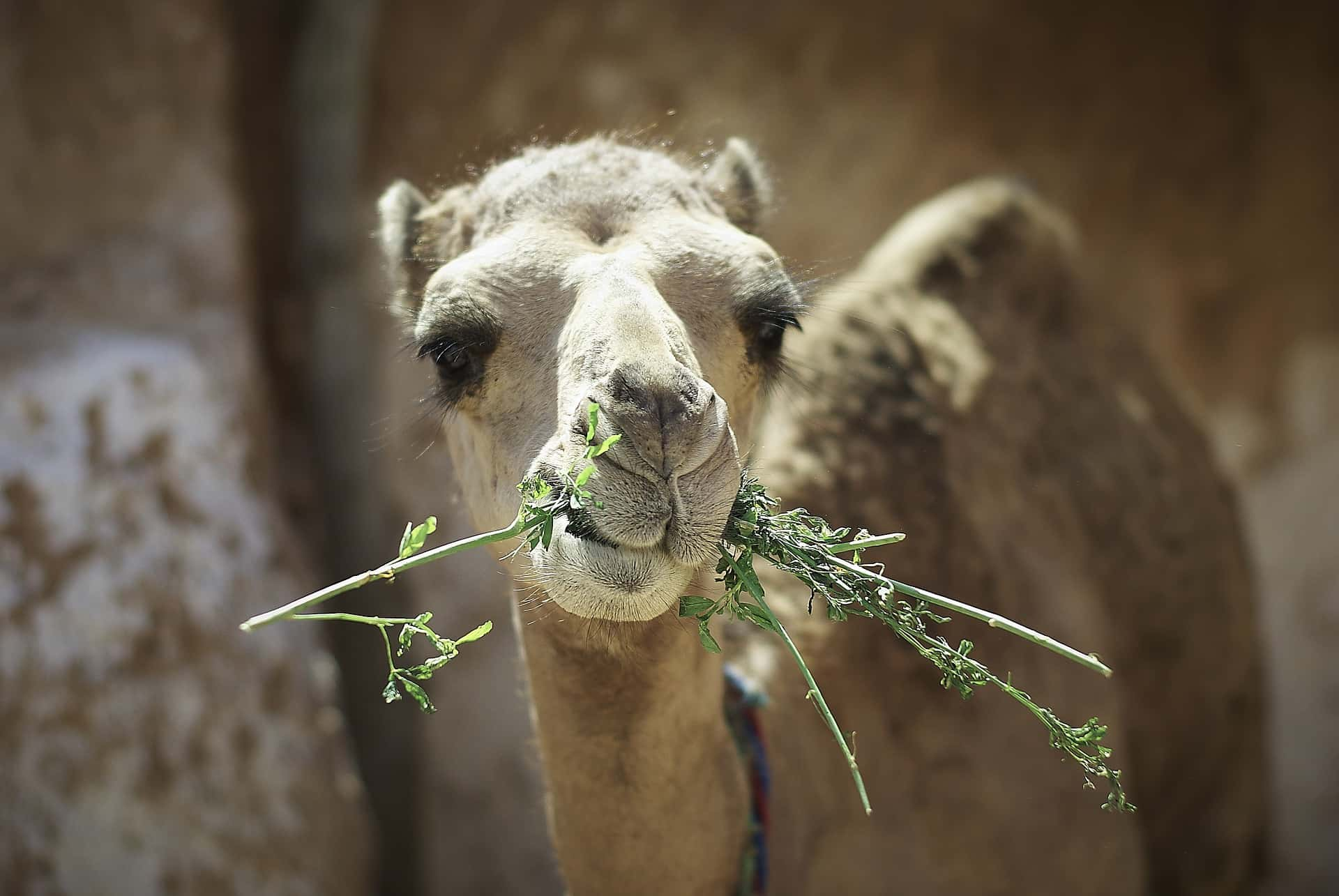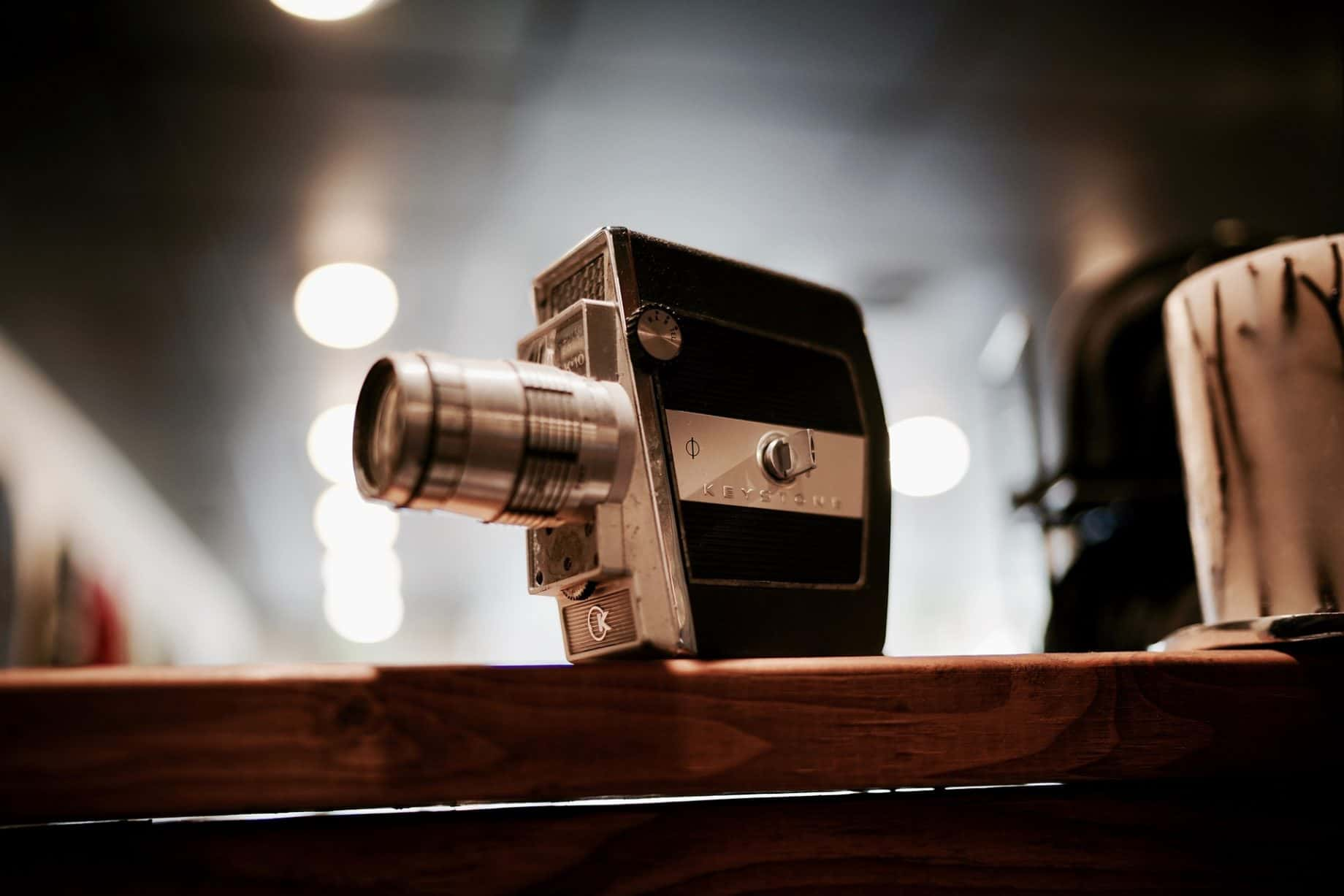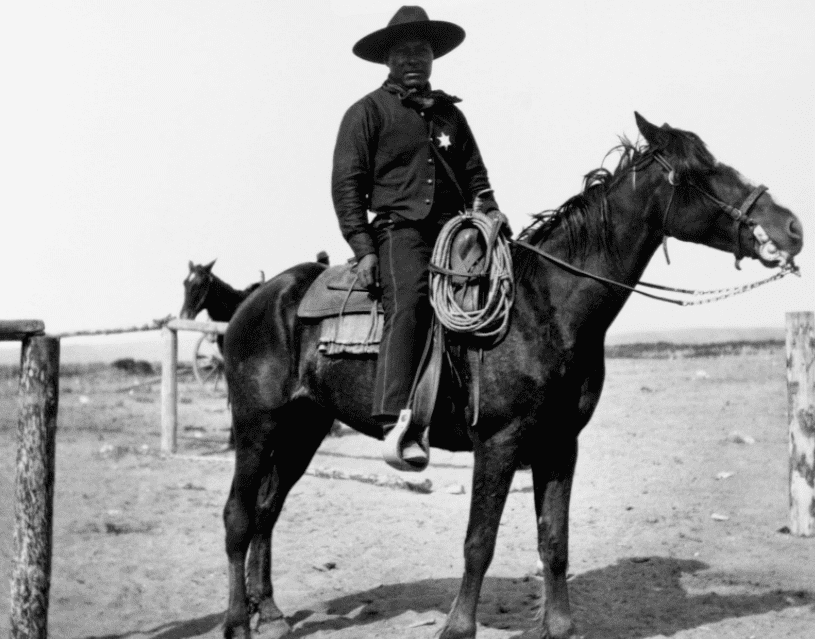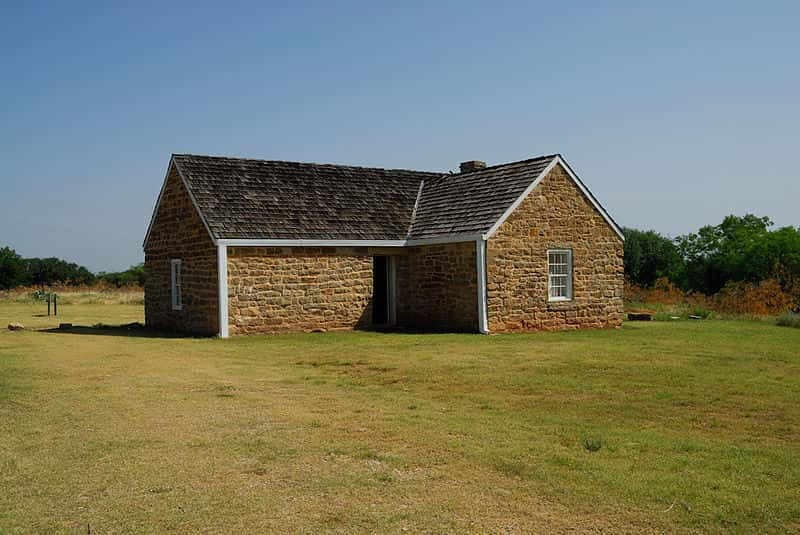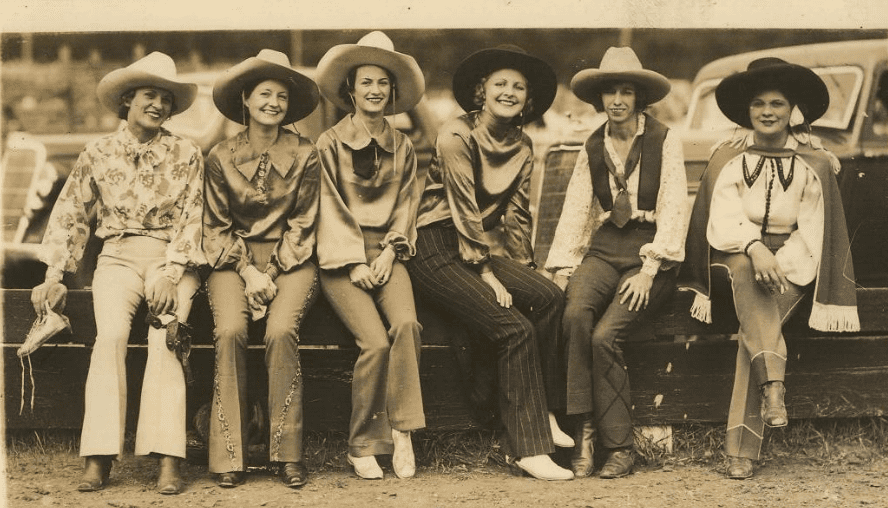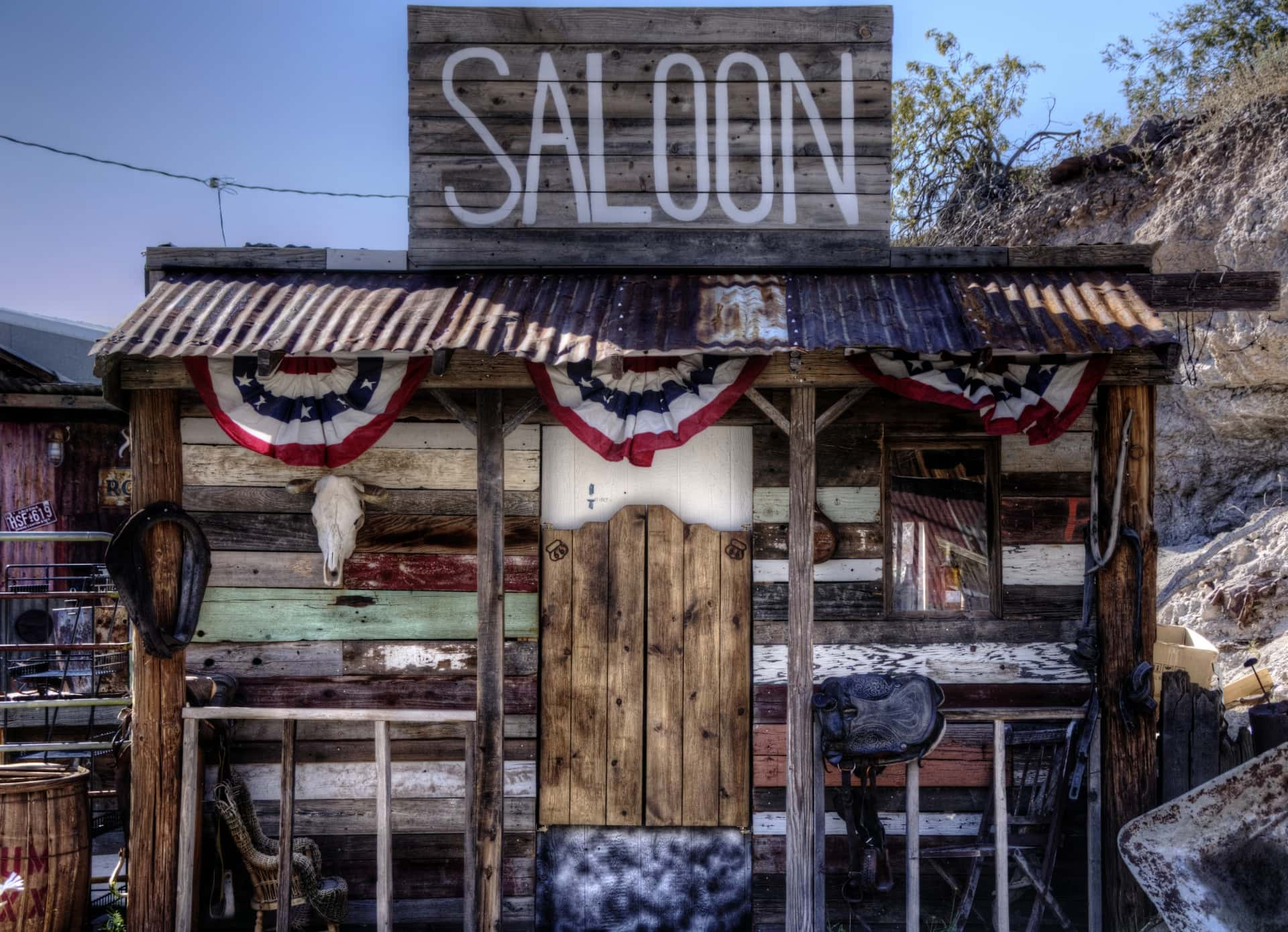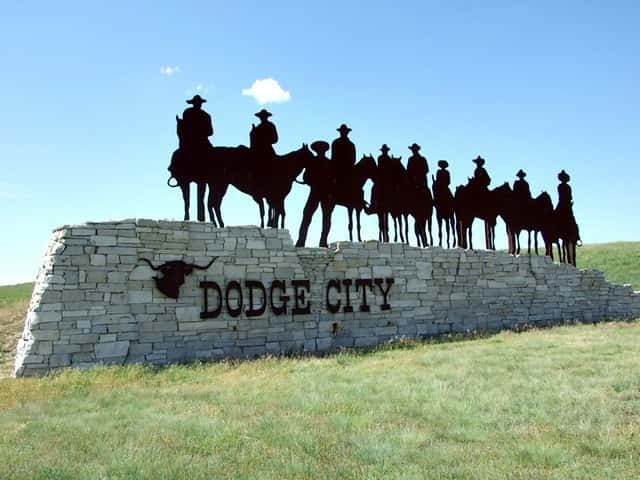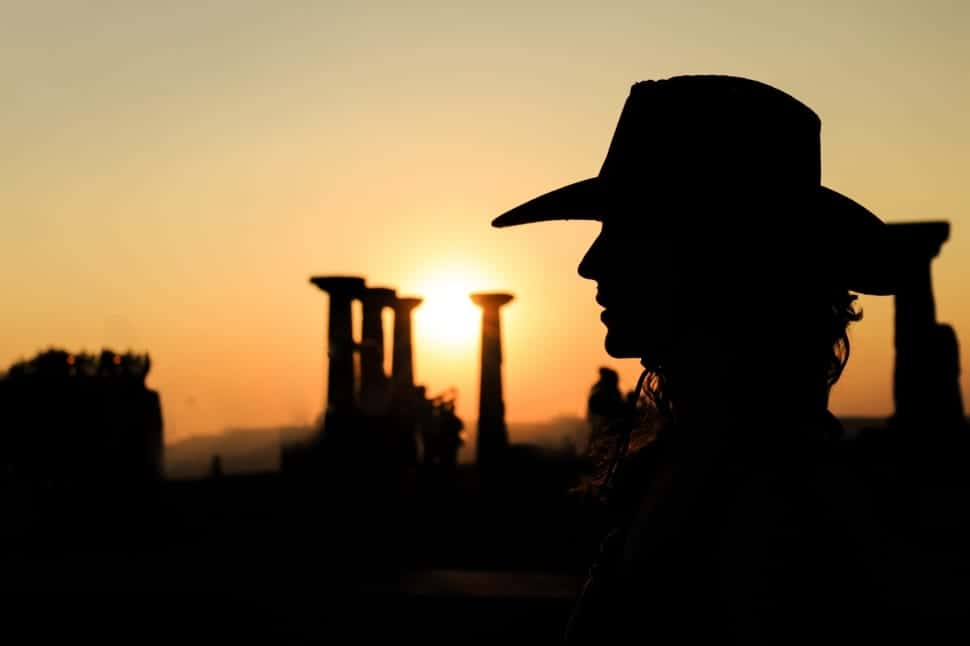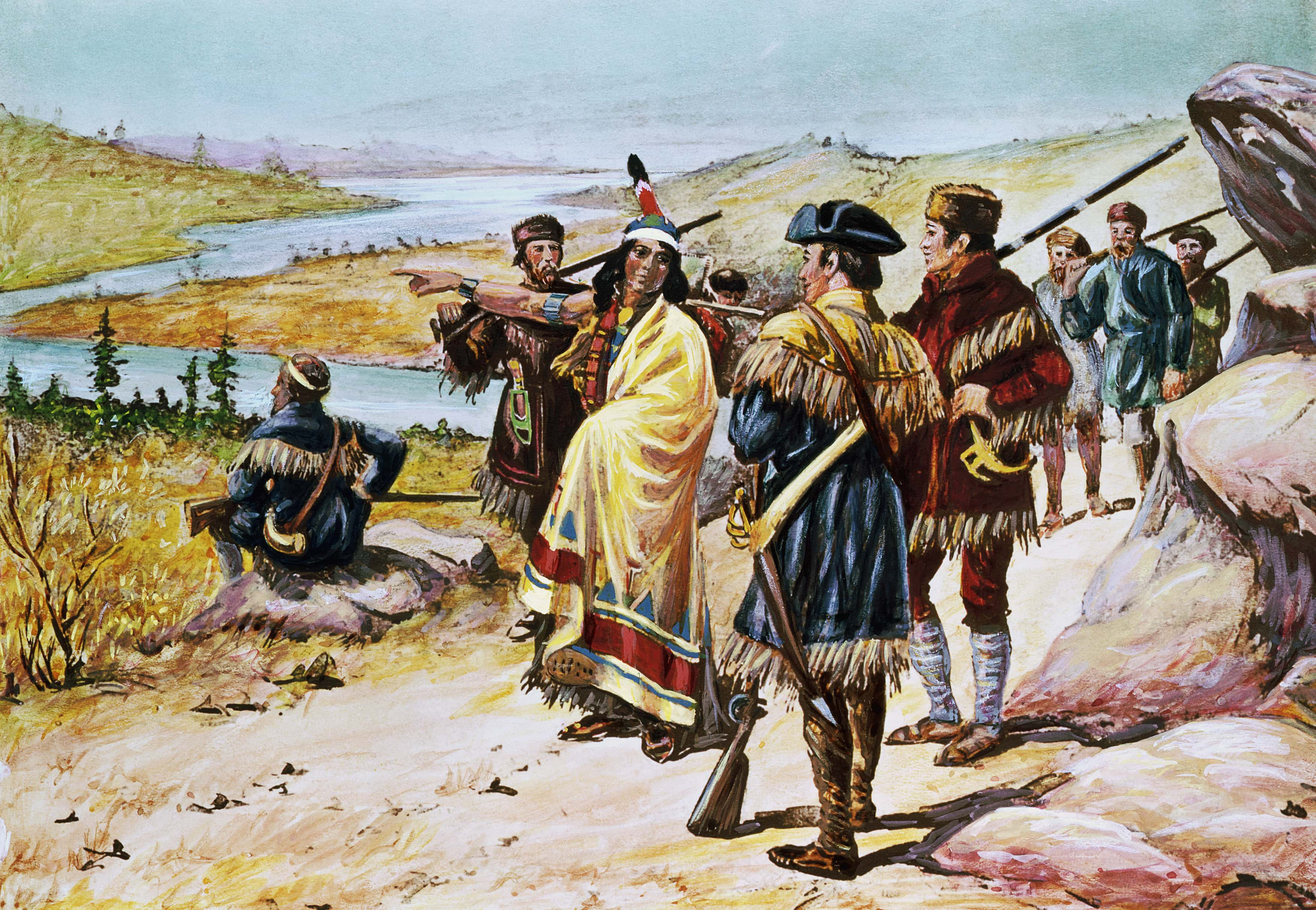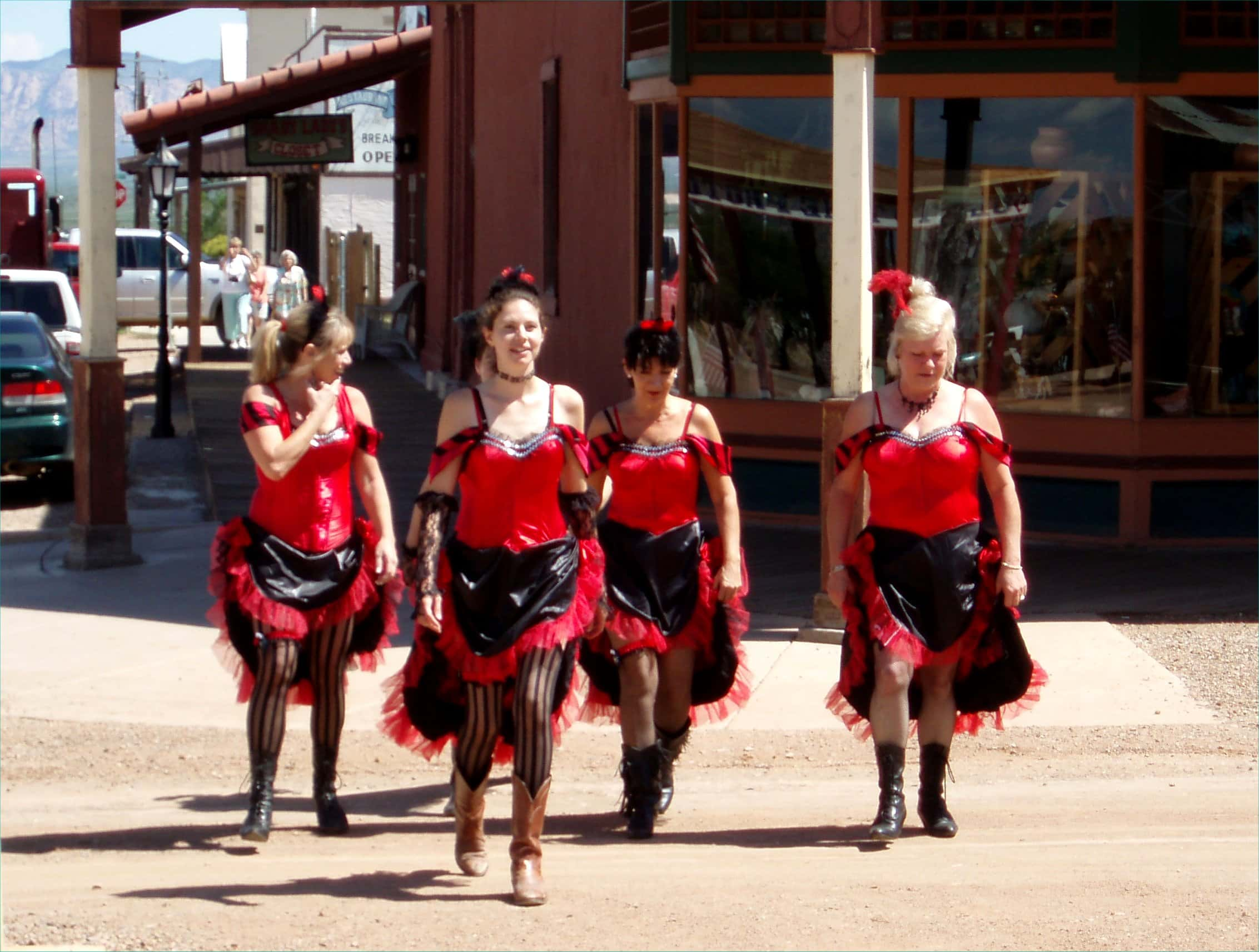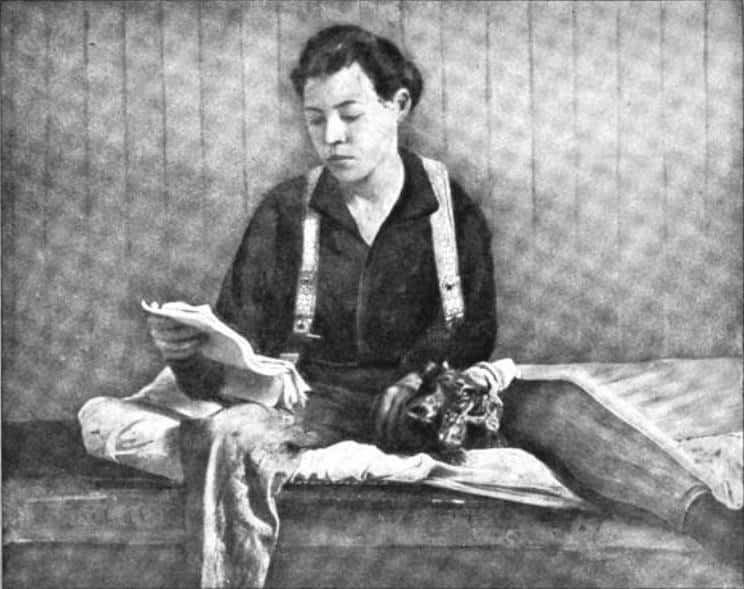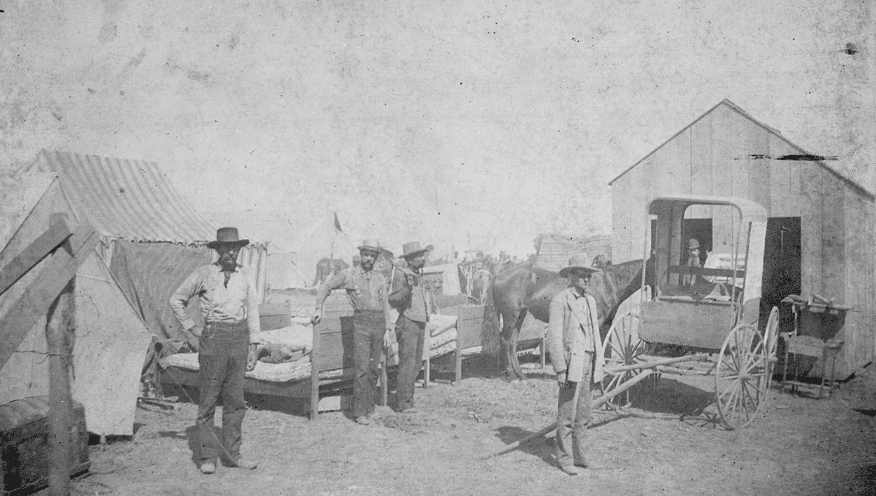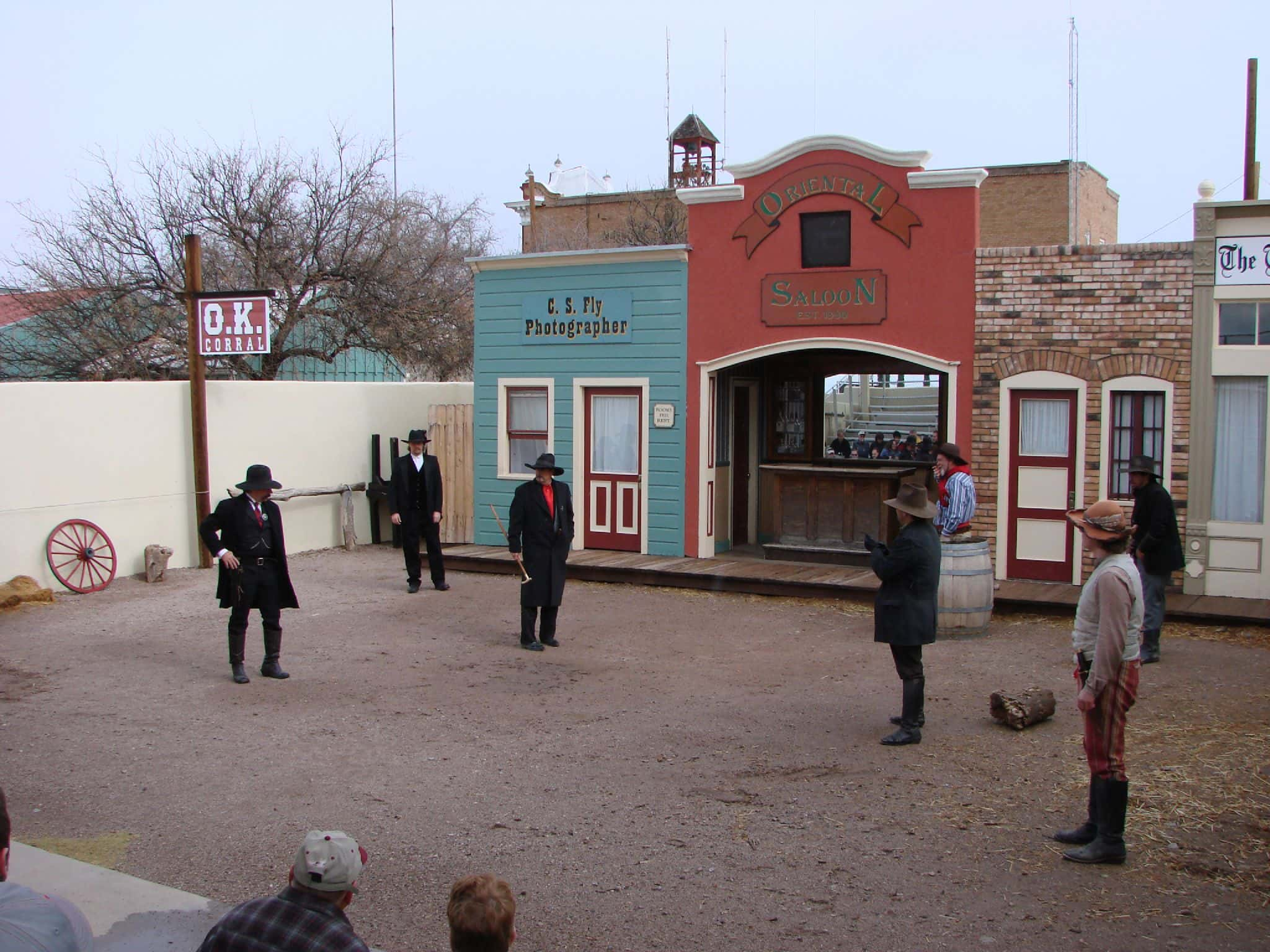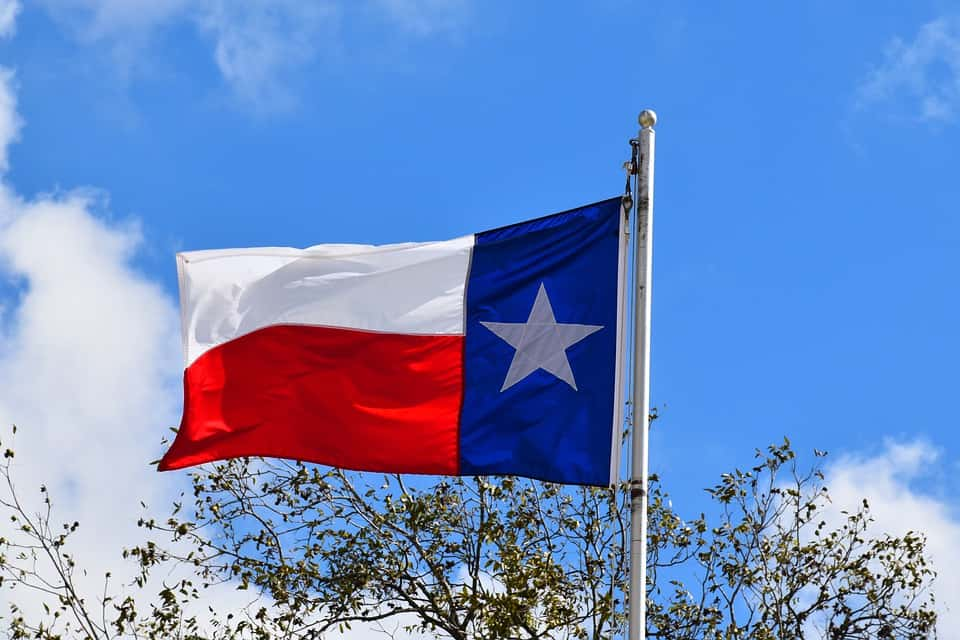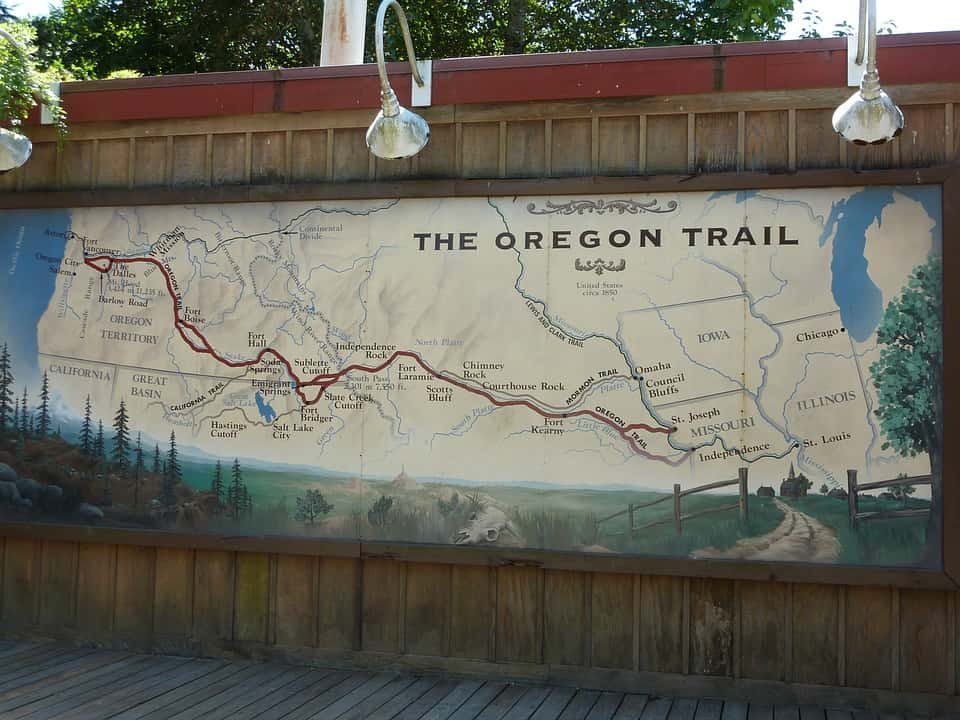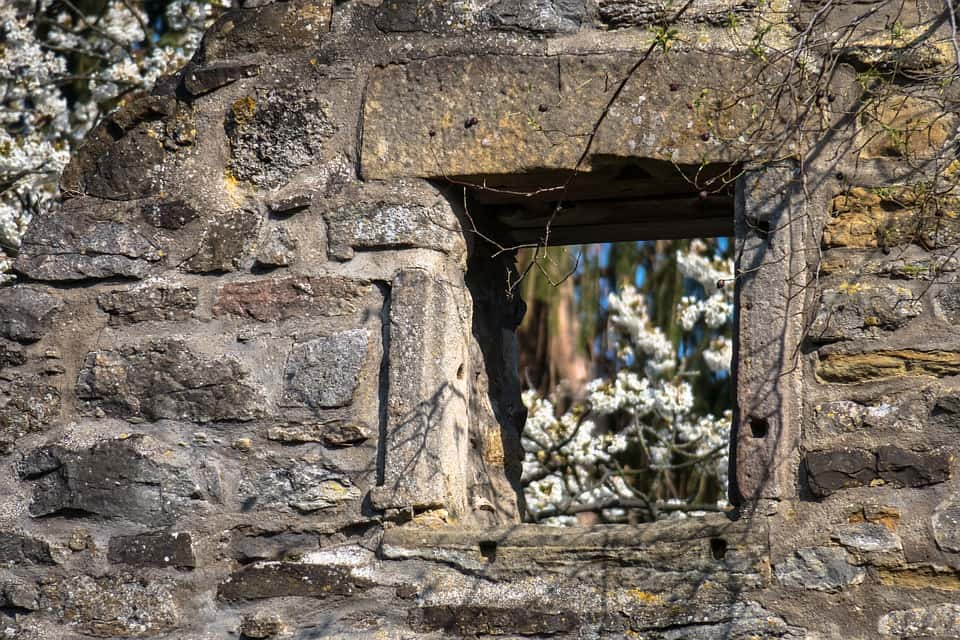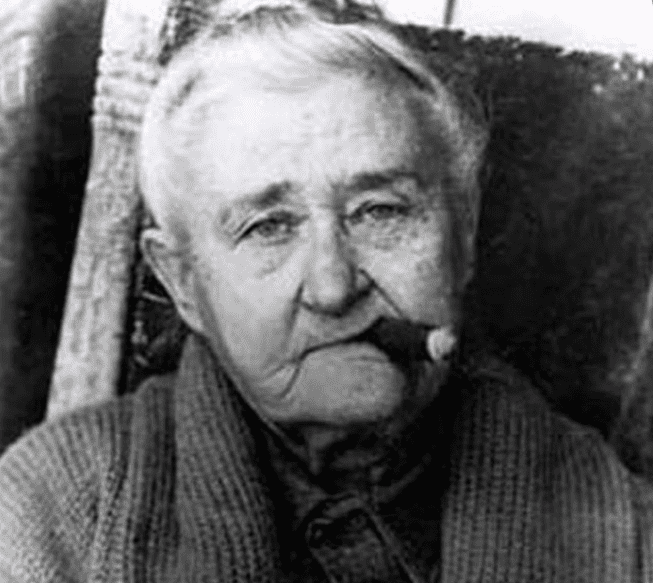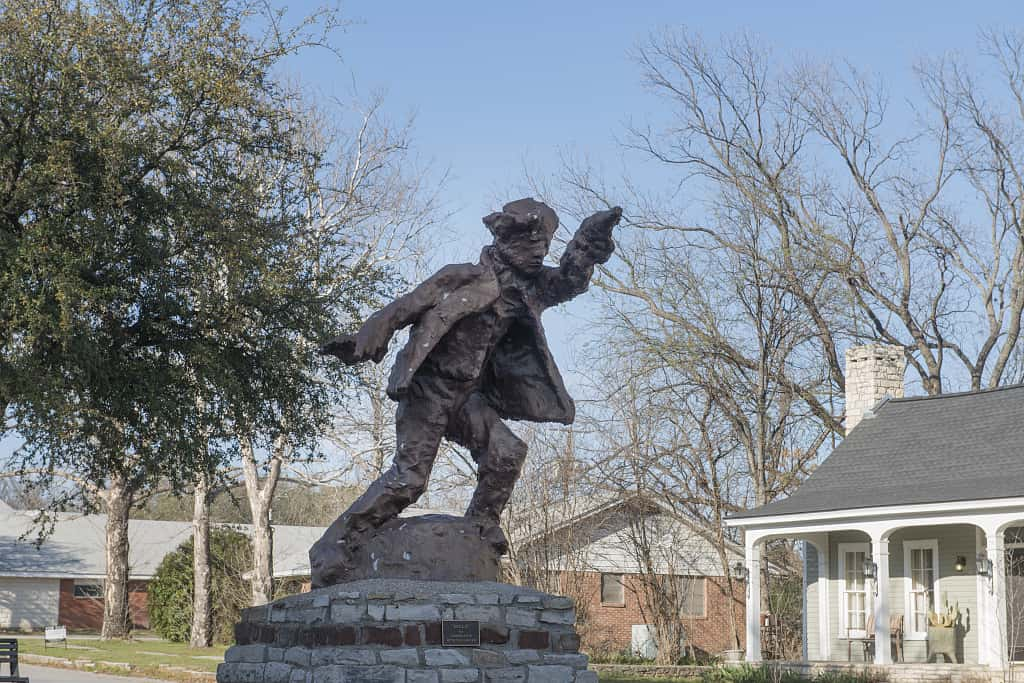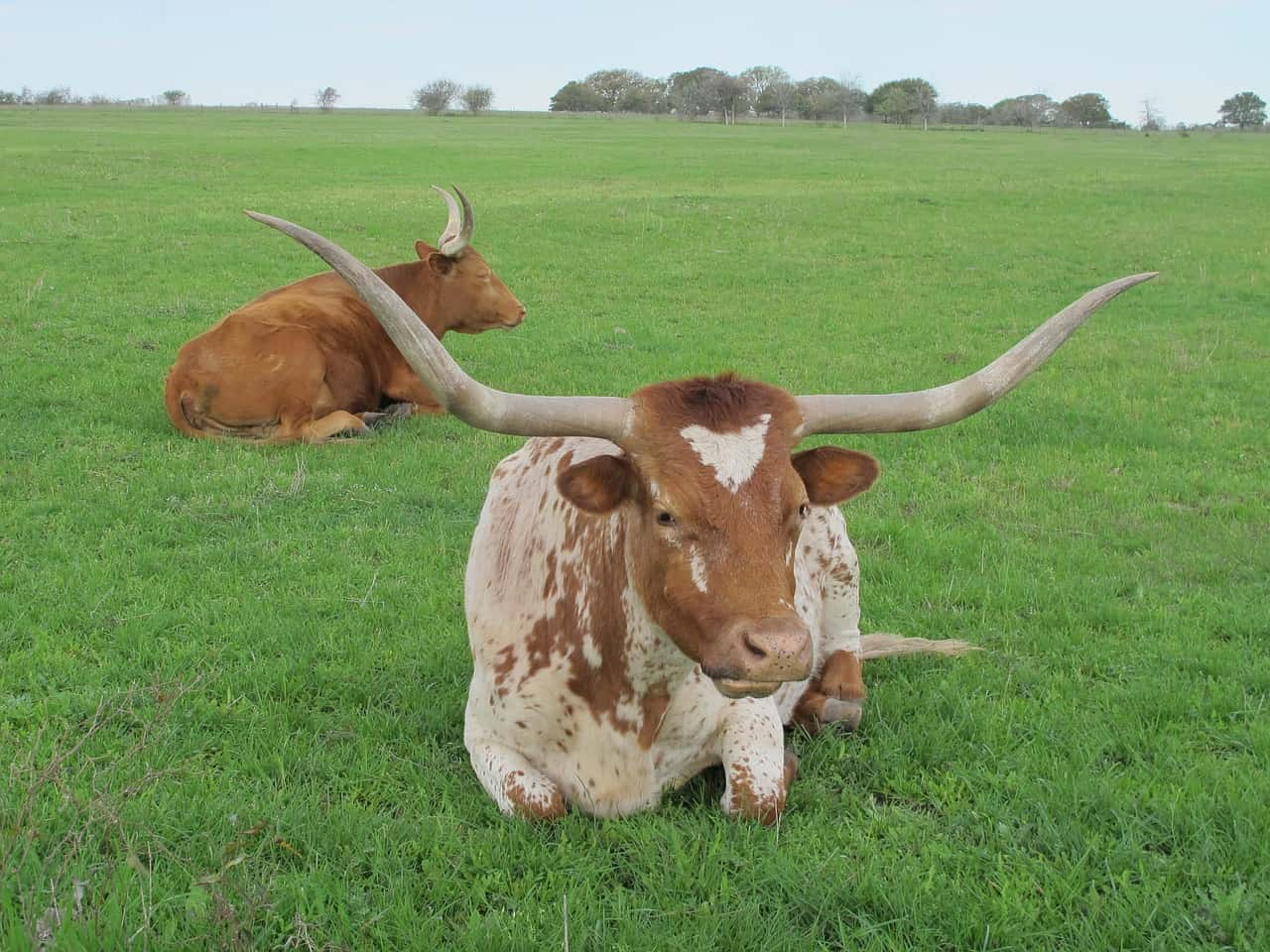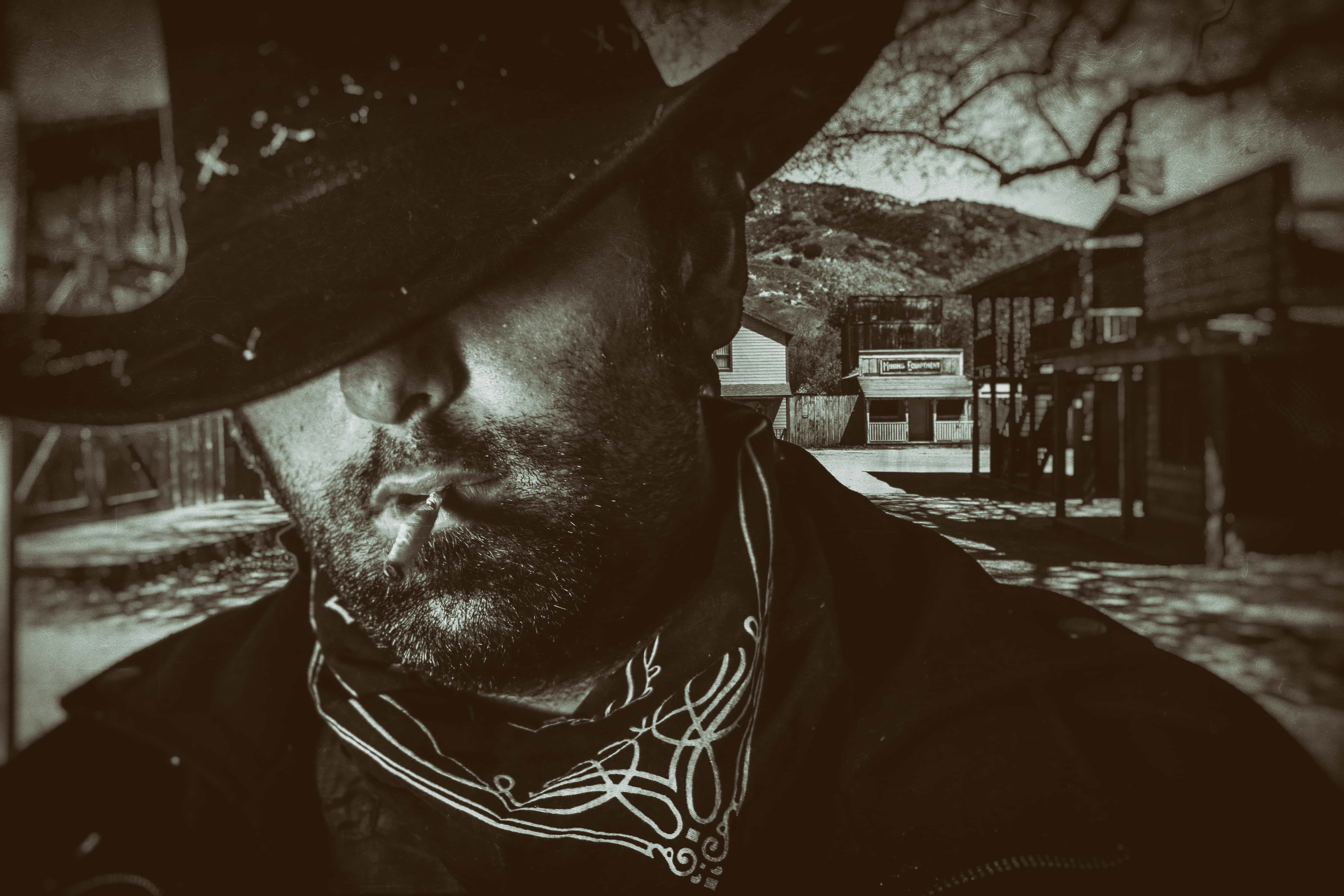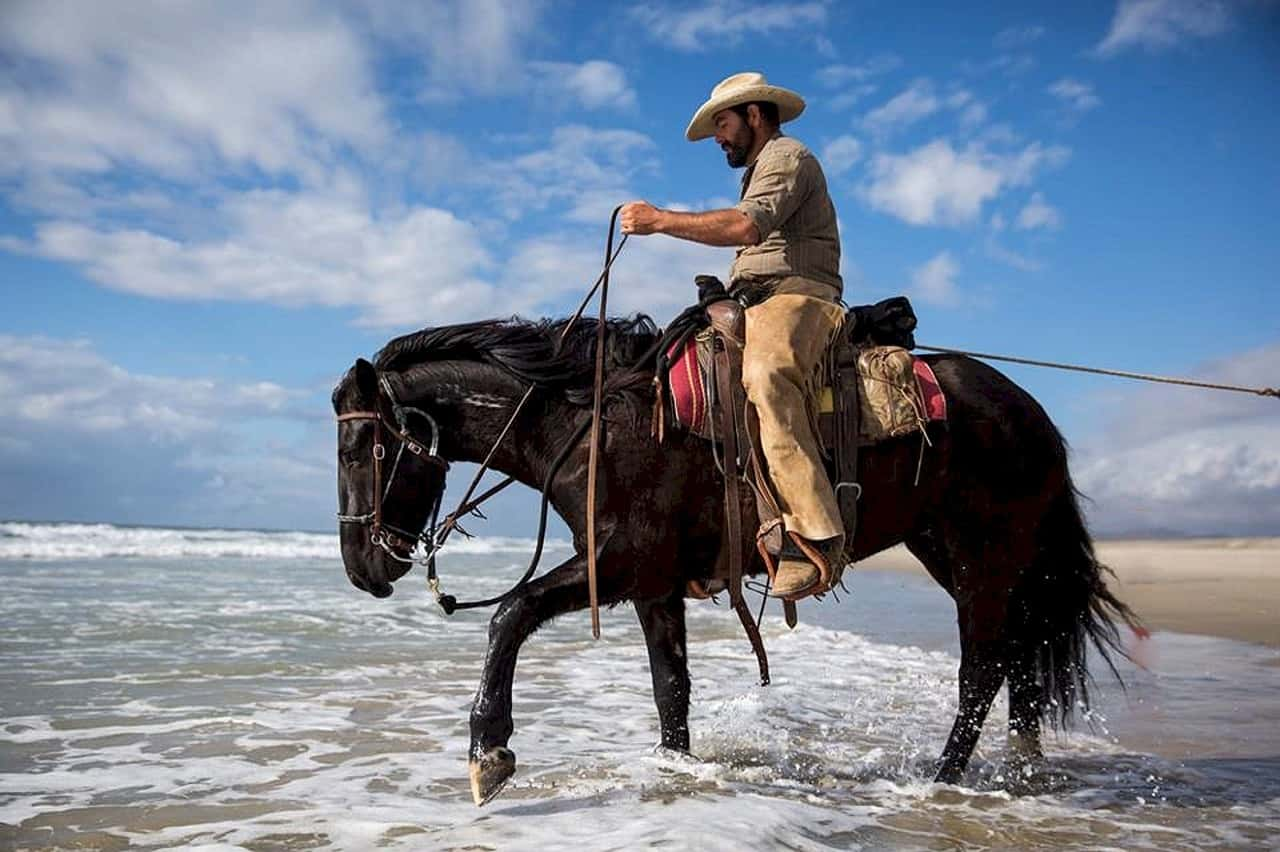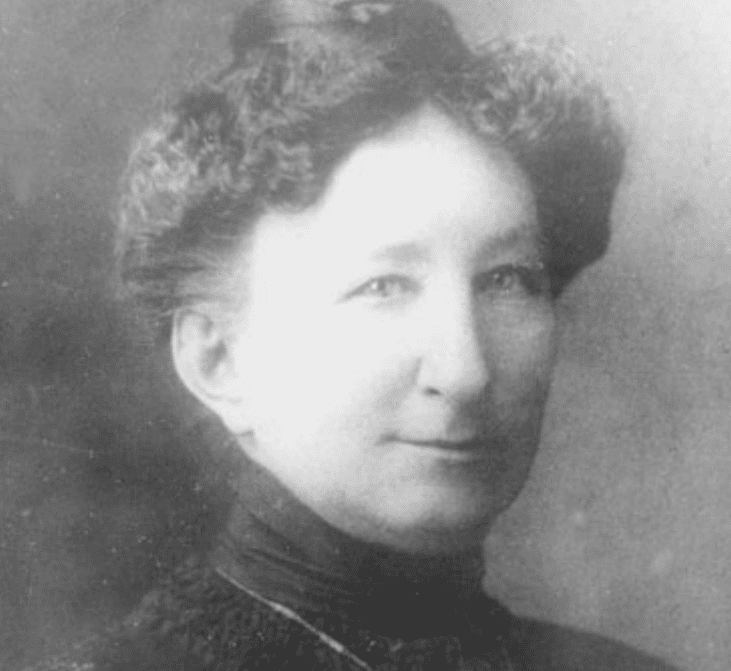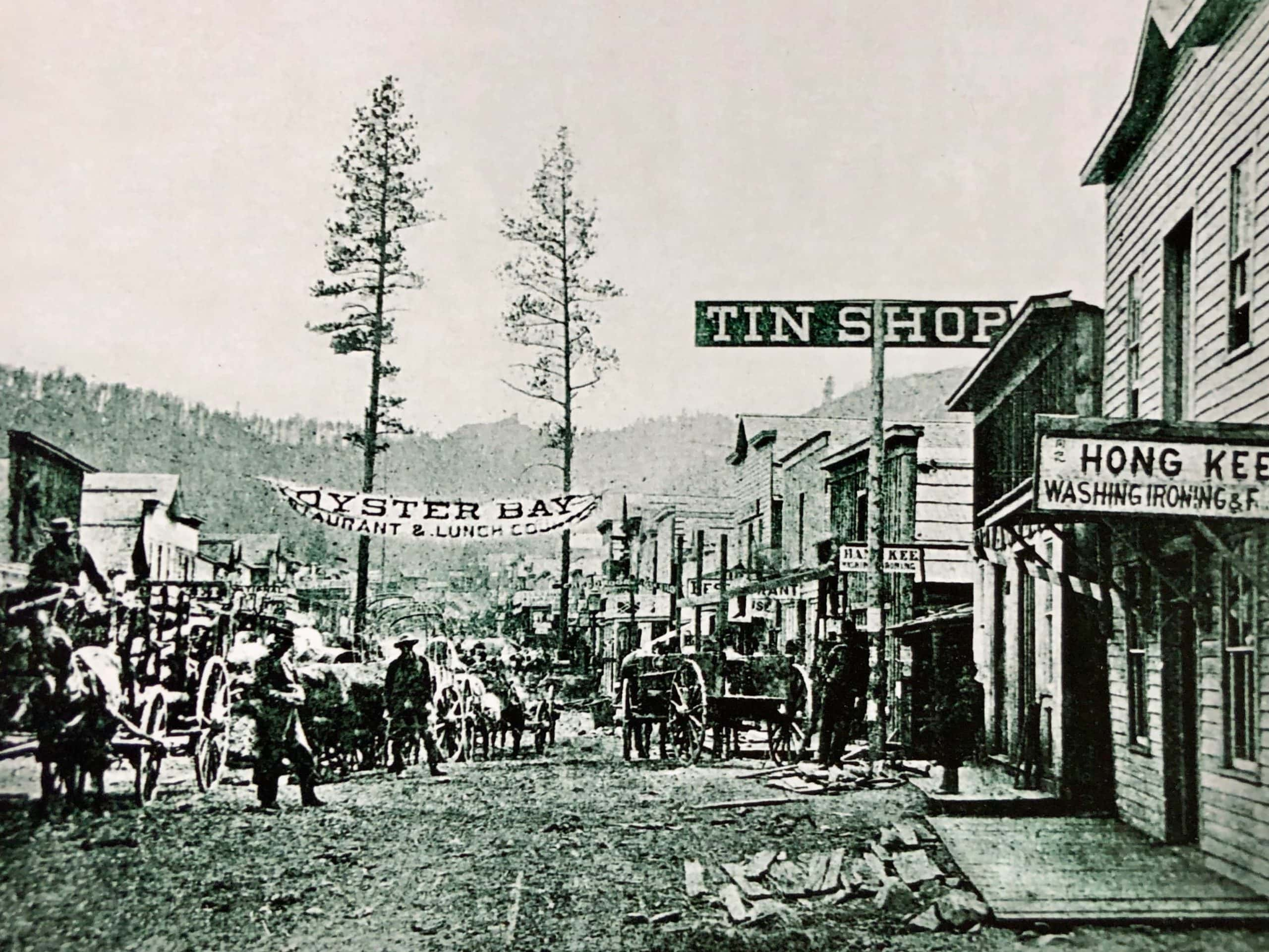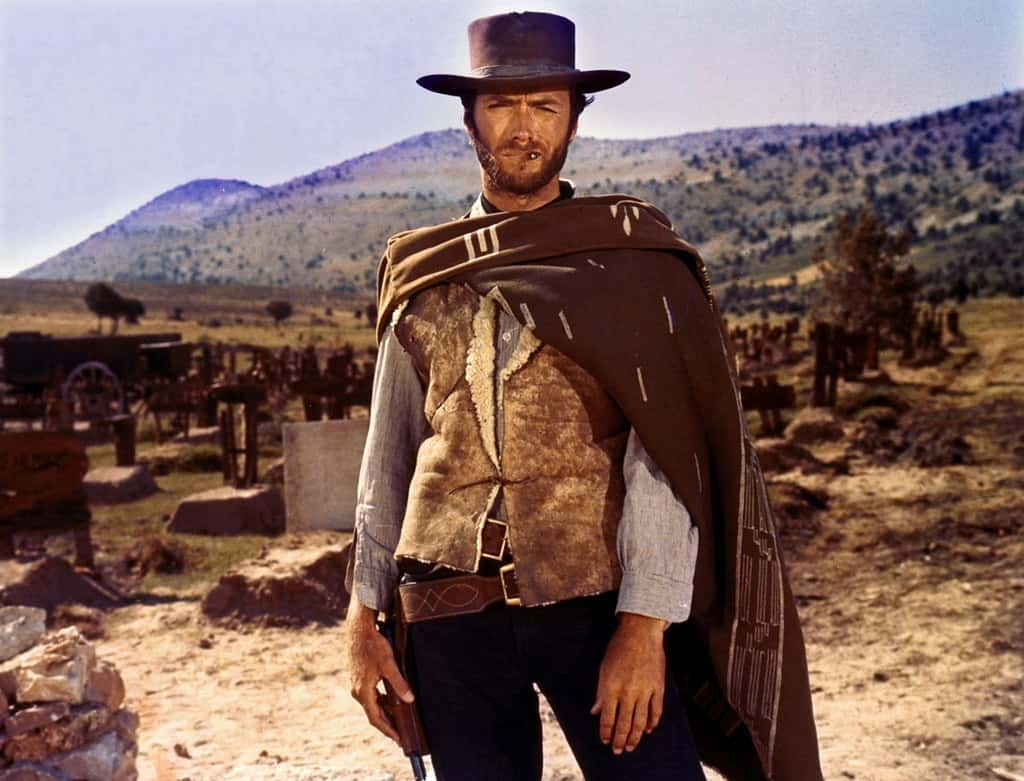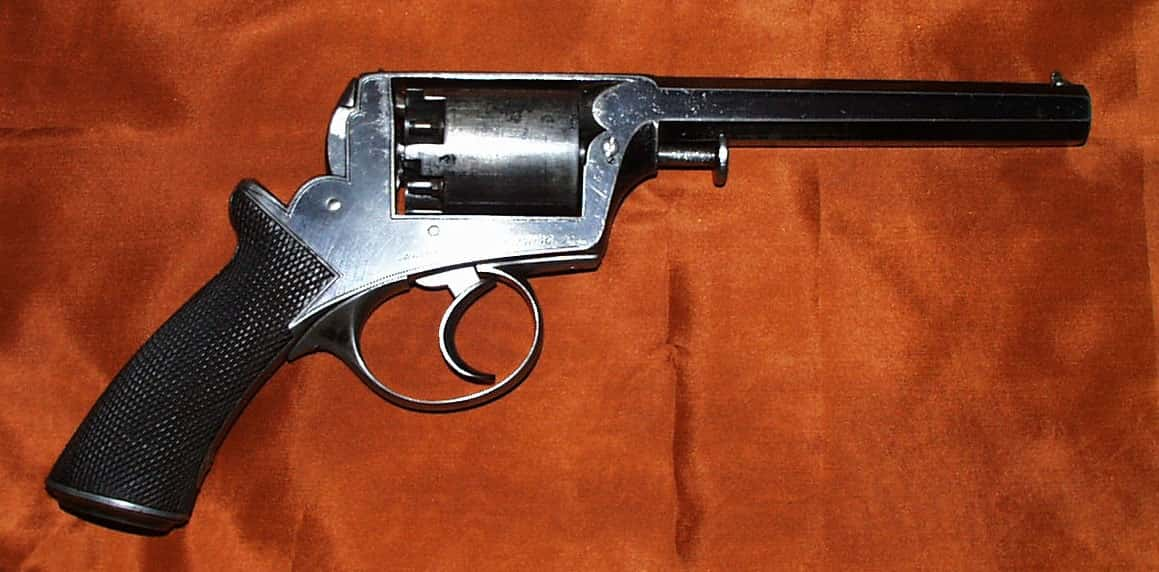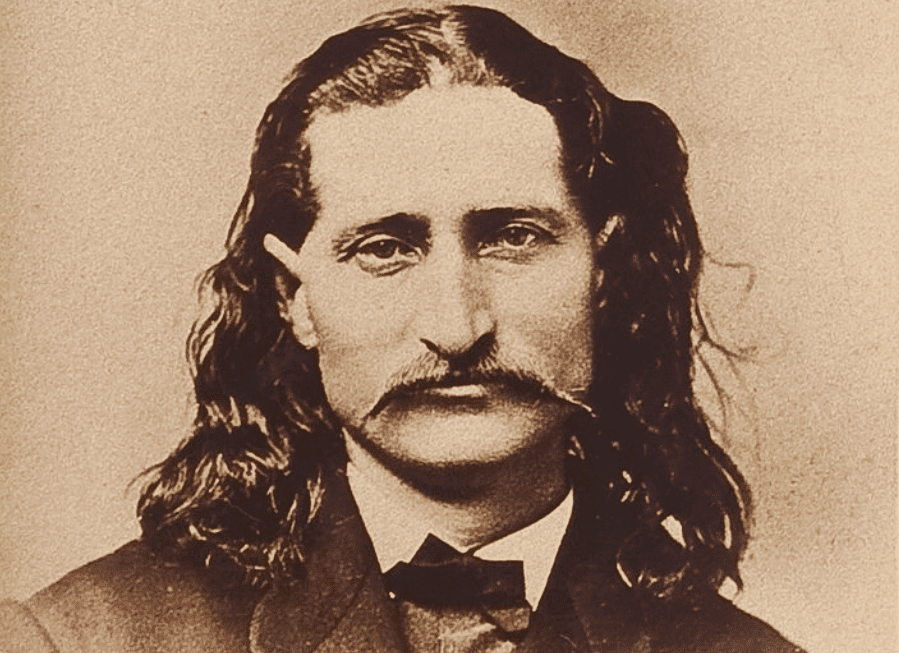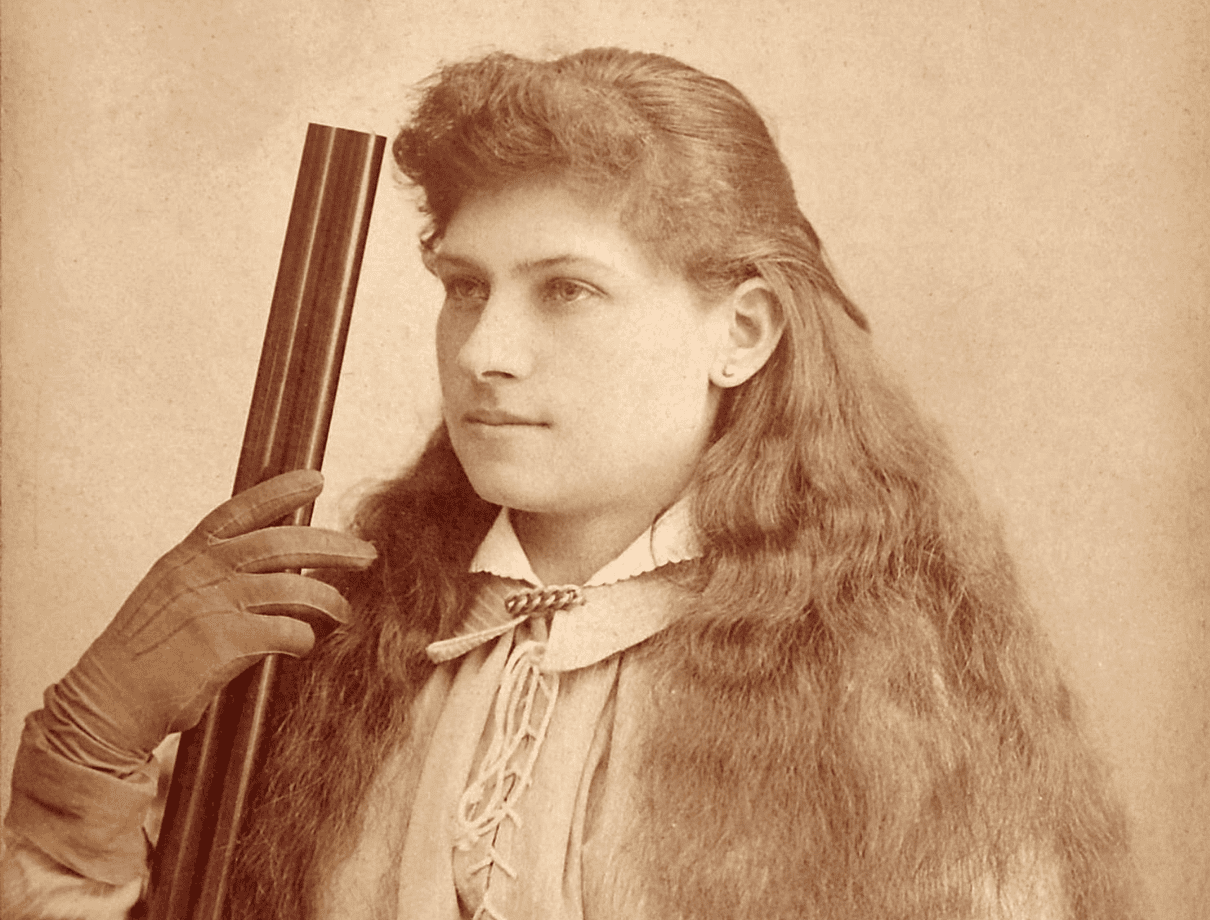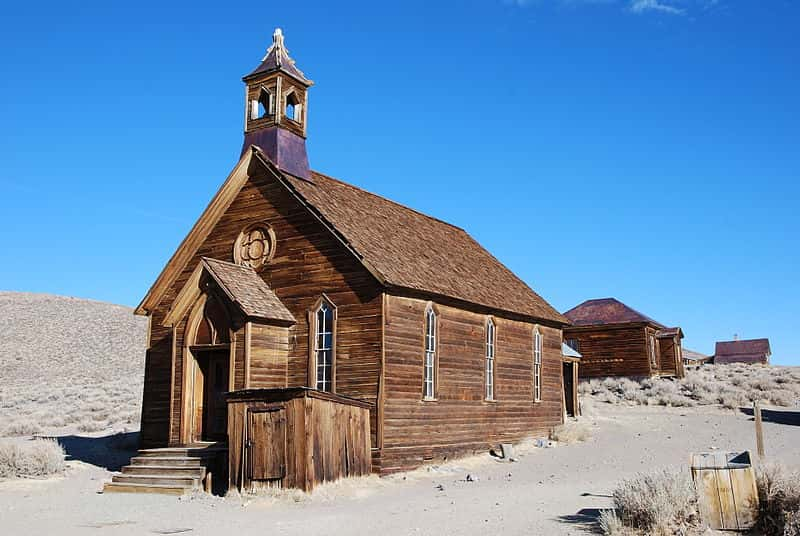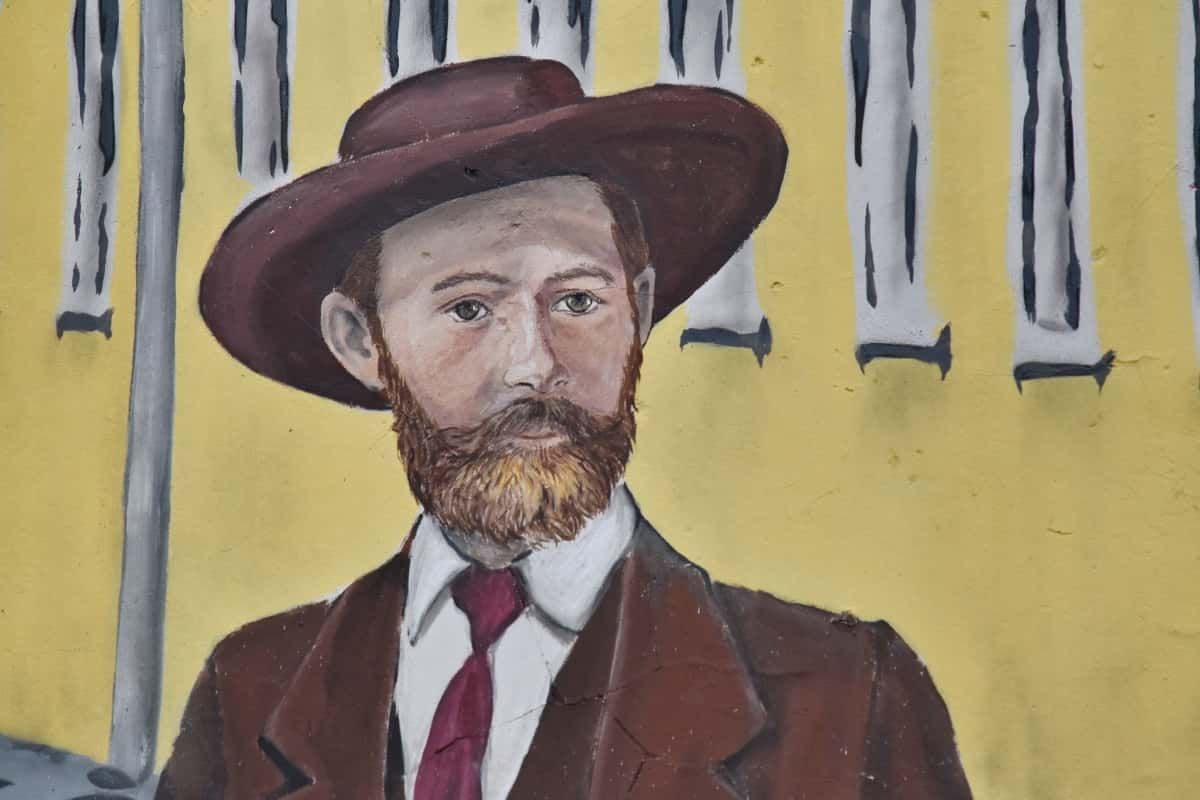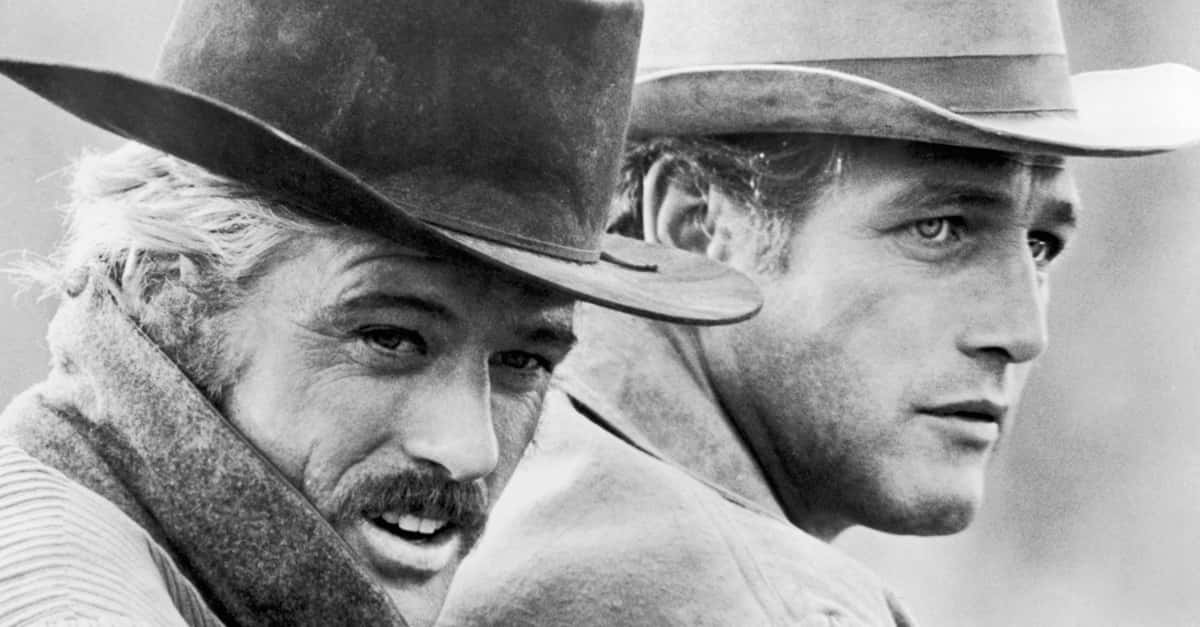“For my handling of the situation at Tombstone, I have no regrets. Were it to be done again, I would do it exactly as I did it at the time.” —Wyatt Earp, lawman
When we talk about the American Frontier, we’re talking about a period of Westward Expansion in the United States that began with English Colonial settlements of the early 17th century and ended when the last territories became States in 1912, and all the history and culture that comes with it. Geographically, the frontier refers to the settlement of the Indian lands west of the Mississippi which are the present-day Midwest, Texas, Great Plains, Rocky Mountains, Southwest, and the West Coast. In the second half of the 19th century and early 20th century, the media focused largely on the American West, which is sometimes called the Wild West or the Old West. This led to an entire genre of books and film devoted to the drama and romance of the period, as well as comic books and toys. Below are 47 wild facts about the American Frontier.
Wild West Facts
47. Holy Man/Tribal Chief
Sitting Bull was a tribal chief of the Hunkpapa Lakota Sioux Tribe. Because of his defiance against the US government, he became symbolic of the struggles between the government and the natives. In 1876, he and his people were able to defeat General Custer’s army in the Battle of the Little Bighorn. Finally surrendering in 1881, he joined Buffalo Bill’s Wild West Show. In December of 1890, he was shot by police in an arrest attempt prompted by Indian Agents who feared he would try to escape.
46. Apache Leader
Native American leader Geronimo was fought against Mexico and the US in their efforts to expand into the Apache tribal lands in what is now Arizona. He led several raids against both of them after his wife and children were killed by Mexican troops in the 1850s. He was given his name for his bravery in battle, where he killed several Mexicans with a knife amid flying bullets. Settlers believed he was the “worst Indian who ever lived,” but after his surrender to US troops in 1886, he converted to Christianity and even rode in Teddy Roosevelt’s inaugural parade.
45. The Wild Bunch
Because of the movie named after them, Butch Cassidy and the Sundance Kid are frequently mentioned together. But it was actually Cassidy who founded the gang known as The Wild Bunch, of which the Sundance Kid was a member, alongside gunslingers Kid Curry and the Tall Texan.
44. Wild West Show
Buffalo Bill had a storied career, starting out as a rider for the Pony Express before he became an Army scout and bison hunter. Bill recognized the amount of interest people had in life on the frontier and capitalized on it by founding Buffalo Bill’s Wild West Show. As the company grew, he toured all over the US before going over to Europe as well.
43. Violent Brothers
There were many famous outlaws in the Wild West, but perhaps none more so than Jesse James. But did you know that he was frequently accompanied in his exploits by his brother Frank James? They began their criminal careers as Bushwhackers during the Civil War and moved on to running their own gang of outlaws. They robbed banks, trains, and stagecoaches until Jesse James was killed by Robert Ford—one of his own gang members.
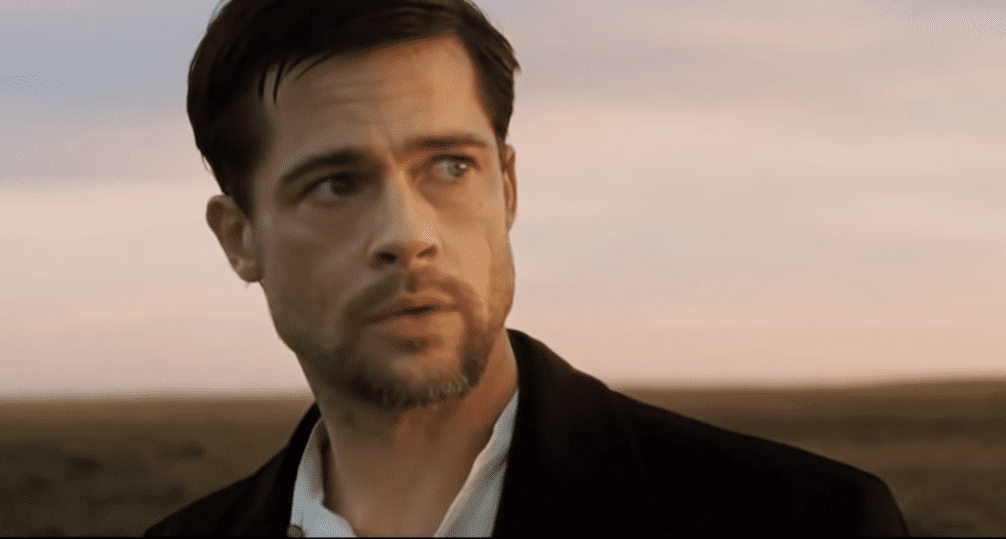 The Assassination of Jesse James by the Coward Robert Ford, Warner Bros.
The Assassination of Jesse James by the Coward Robert Ford, Warner Bros.
41. The Spanish Territory
In addition to the Louisiana Purchase, Jefferson also wanted to claim Spanish Florida. In 1819, the Andis-Onis Treaty or the Transcontinental Treaty gave up Spanish control of Florida to the US and set a boundary between the US and New Spain. The treaty lasted for just about half a year, at which point Spain signed a treaty granting independence to Mexico. The Transcontinental Treaty then defined the border between Mexico and the US.
40. Incorporating Texas
When the newly independent Mexico temporarily suspended US immigration to Texas in 1830, the people started pushing for the independence of Texas. Once that happened, they were eligible to join the United States, and finally did in 1844.
39. It Was Destiny!
The term Manifest Destiny was coined in 1845 when it was published in a summer issue of the Democratic Review. It described the philosophy that was behind the push for expansion into the West, and particularly the Oregon territory. It held that the US was destined by God to expand their territory and to bring democracy and capitalism to the entire continent.
38. One More Push
Once the Oregon territory was settled, President Polk was anxious to acquire California from Mexico. This led to the Mexican American war, which ended with the Treaty of Guadalupe Hidalgo. The treaty granted the US 525,000 miles of territory, including what is now Arizona, Colorado, New Mexico, Nevada, Utah and Wyoming.
37. Making the West Wild
The pioneers who were settling the West were faced with harsh conditions as well as the violence that occurred as they forced Native Americans from their lands. This led to a breakdown in law and order and an everyday struggle for survival. The Indian Wars, which were the result of increasing tensions between the Natives and the settlers made the west a dangerous place to be.
36. Protect and Defend
Because of the dangerous climate of the West, the settlers had to come up with a way to protect themselves, and many took up the right to bear arms in order to defend themselves.
35. Natural Phenomenon
St. Elmo’s Fire, or Foxfire is a phosphorescent light which was often seen on the tips of cattle’s horns, and occasionally on a horse’s ears. It usually occurred on stormy nights or when there was electricity in the air. When the storm is fully charged, leaves, blades of grass, and the horns of cattle glow at their tips.
34. Wild Camels
In 1855, the government used funds to buy and ship camels from Egypt. They thought that they would do better in the heat than horses would, making missions easier. When the Civil War broke out a couple of years later, many camels escaped, and bred, leaving hundreds of feral camels in the wilds of Texas.
33. Say Cheese!
In the time of the Wild West, convincing the public of an outlaw’s death could be a challenge, so it became a custom to photograph the body. Outlaws were often posed upright against a wall and photographed as quickly as possible before they stiffened up. The photographs were also necessary to be used as proof for collecting rewards. Basically, if there was no picture, there was no guarantee the outlaw was dead.
32. Whitewashed
Despite what the movies suggest, as many as one in four cowboys were black. African American cowboys handled cattle, worked on ranches, tamed horses, and even appeared in rodeos. Somewhere between 5,000 and 8,000 black cowboys are estimated to have been part of the cattle drives of the 19th century. Some were slaves, brought to the west by their white owners, but many continued in the trade after emancipation.
31. Wildest Place in the West
It’s called the Wild West for a reason, and there’s nowhere that name was embodied more than it was in Fort Griffin, Texas. The town was built at the intersection of the West Fork of the Trinity River and the Clear Fork of the Brazos River in the north part of Texas. The fort was built on a hill overlooking the Brazos River and was originally designed to protect the ranchers and farmers who lived in the settlement below. The town quickly became a popular stopover for cowboys and outlaws, and by 1870, skirmishes with the Indians in the north were taking up most of their forces, and law-enforcement became almost non-existent. As a result, the town got even rougher, with the likes of Big Nose Kate, Doc Holliday and Wyatt Earp passing through.
30. The World’s Oldest Profession
A common misconception about women in the Wild West is that they were all prostitutes, but this was not actually the case. Some women were wives and mothers, while others owned businesses, worked as physicians, or even became outlaws.
29.Western Bar
In the Wild West, pub-bar hybrids called saloons popped up pretty much anywhere there was a settlement. They were a place for cowboys, trappers, miners, lawmen and even gamblers to come in for some food and drink and maybe a game of cards. Unlike the popular image of the saloon with the swinging wooden doors and the hitching post out front, the original saloons were little more than tents or shacks. As the town grew, the saloons became more permanent structures, growing similar to what is pictured in movies and on TV.
28. Getting Out of Dodge
The well-known expression “get the hell out of Dodge” was used in the popular TV western Gunsmoke, and referred to Dodge City, Kansas, which was a well-known hangout for gunslingers. In the 1870s, it became so well-known that when big companies needed fighting men to protect their businesses, they would look for them in Dodge. As one resident said, “They feared neither God, man, nor the devil, and so reckless they would pit themselves, like Ajax, against lightning, if they ran into it."
27. A Contradiction in Values
One of the most notorious criminals in the Wild West was James “Killer” Miller who was a paid assassin and gunslinger. He was known to have killed at least 14 people, but according to legend, the number could have been as high as 50. He was also called “Deacon Jim” because he didn’t’ smoke or drink, and frequently went to church. He was eventually caught and put in jail in Oklahoma, where he ended up being killed by a lynch mob who stormed the prison and hung him in a barn.
26. Not a Southpaw
An early photograph of Billy the Kid shows him with his gun belt on his left side, leading people to believe that he was left-handed. What people didn’t realize was that the photograph was a mirror image, due to the type of camera, which meant that his gun belt was actually on his right side, and that he was not a lefty. Also of note was that the model of Winchester rifle that he carried only loaded on the right, and it would have therefore been impossible for him to carry it on his left side.
25. The Original Mountain Man
In 1804, John Colter took off on a journey to the West as part of Lewis and Clark’s Corps of Discovery. After two years, most of the expedition members returned home, but Colter decided to stick around and try to make it as a fur-trapper. A famous story of Colter’s adventures pertains to a supposed run-in with the Blackfoot Indians. The band supposedly killed his partner, stripped Colter naked, and gave him a head start before chasing after him. Colter supposedly managed to outrun most of them before killing the closest pursuer with his own lance. It’s also possible that he was the first white man to see Yellowstone National Park and a section of the Shoshone River in Wyoming became known as “Colter’s Hell” due to geothermal activity in the area.
24. That’s Strong Stuff
The whiskey that was sold in American saloons was a combination of burnt sugar, alcohol and chewing tobacco, and was extremely strong. Cactus wine was also a popular drink and was made from a mix of tequila and peyote tea. Firewater, a common term for whiskey at the time, originated from early traders throwing whiskey on a fire to prove to the Indians that it had a high alcohol content. When alcohol was combined with a game of cards, deadly gunfights could break out, and having some solid shooting skills was a wise idea for protecting their stuff and themselves.
23. Saloon Girls
The Wild West was a lonely place for men. In most towns, they outnumbered women 3-1, and in California, it was as much as 9-1. To help entertain the men, saloons would hire girls to dance with the men, sing to them, and basically keep them drinking and playing cards. Although they were often lumped in with prostitutes, they were not the same thing. Saloon Girls were generally considered to be good girls and were usually treated like ladies. In addition, the money that they could make from one night’s commissions was often better than what men would make in a month, so very few would also be prostitutes. Being a Saloon Girl could also be quite dangerous, and it was customary for the girls to carry a small pistol or dagger for protection.
22. Most Famous Woman in Arizona
As a teenager, Pearl Hart was more interested in adventuring than school, and at age 17, she left her home in Canada to elope with the gambler Fredrick Hart. When Hart turned out to be abusive, she left him, and moved to Arizona where she met and married Joe Boot. Unable to make money at mining, the pair took up robbery. In 1899, she formed a plan to rob a stagecoach with Boot. They might have successfully gotten away, but they got lost in the desert and were caught. She became the second woman to rob a stagecoach and the first not to be killed while doing so. She was pardoned after 18 months due to lack of accommodation in the prisons for women.
21. A Lucky Symbol
Horses played an important role in settling the West, and along with the new settlers came folklore about horseshoes. According to superstition, horseshoes drove away evil spirits when nailed above a doorway or a sailing mast on a ship. Eventually, the spirit part became less important, and they became a lucky symbol. The shoes became a common symbol of the west, and could be found above doors and tossed onto pegs in a game of the same name.
20. Talk Like a Cowboy
The Wild West had a language all its own and many phrases are still in use today. "Bellyaching" means to complain. "Caterwauling" also refers to complaining, or to terrible singing. A "fandango" is from the Spanish word and means big party with lots of dancing. If you have a desire for something, it’s called a "hankering" and someone who is snooty or arrogant would be called "highfalutin." If something "doesn’t amount to a hill of beans," it’s essentially worthless, and to be angry is to be "hoppin’ mad."
19. Gold!
In 1848, gold was discovered in California, which brought a rapid influx of settlers to the West. Over 175,000 people came to the West hoping to strike it rich, and the period became known as the "gold rush."
18. Short Shootout
Over the years, the shootout at the O.K. Corral has become a famous story of the Wild West, but in truth, despite the involvement of 8 people, it only lasted about 30 seconds, and it didn’t happen at the O.K. Corral. The shooting actually took place at the intersection of Third Street and Fremont Street in Tombstone, Arizona which is behind the corral, but the bloodshed involved was no exaggeration. Three lawmen were injured, and three cowboys were killed.
17. Lone Star
Texas is known as the Lone Star State for its flag with the singular 5 pointed star, but the symbol of the star originated with German Settlers, who would paint stars on their barns. The settlers brought many of their customs with them to Texas, and the barn star is the likely inspiration for the Texas flag.
16. Westward Ho!
Many of the settlers coming to the West traveled along a path known as the Oregon Trail, which started at Independence in the East to Oregon City in the West. Many people died on the journey succumbing to illness or in conflict with the Native Americans who were defending their land. It was from this westward movement that the image of the wagon trail seen in movies was derived—as well as one of the greatest early computer games mankind has ever seen, despite how frustrating having your family repeatedly die of cholera can be.
15. Widowmaker
Delmar, Nevada became a Wild West town known for the dangerous conditions of its mines. In 1889, gold was discovered in nearby Monkey Wrench Gulch, and within a few years, Delmar grew to a population of 1,500 with a hospital, a school, and multiple saloons. In 1893, a mill was built to refine the gold, and it exposed the miners and the townspeople to silicon dust which when breathed in could damage the lungs and cause death. At one point, there were as many as 400 widows living in Delmar which gave it its reputation as the Widowmaker. The mill was torn down in 1909, and though the mines briefly restarted, they also ceased. By 1934, all the residents had moved away, and the town was abandoned.
14. Queen of the Card Table
Alice Ivers was born in England but moved with her family to America in 1865 and was sent to a girl’s boarding school. She moved West and became notorious for her skills at the poker table. Whether she got her skills from her dad or from her gambler husband is unknown, but she became queen of the card table and earned the nickname “Poker Alice.” She was known for smoking cigars, wearing the most expensive dresses money could buy, and for being an expert at counting cards. She even had a catchphrase that went something like “Praise the Lord and place your bets, and I’ll take your money with no regrets!” It’s said that she won about $250,000 in her lifetime.
13. Notorious Outlaw
Billy the Kid was one of the most infamous outlaws of the Wild West. He claimed to have shot 21 people in his lifetime and was eventually shot by lawman Pat Garrett.
12. Big Horned Cattle
The Texas Longhorn is a type of cattle known for its vast horns. They were brought to the US by the Spanish and were central to cattle drives. The breed is known for its hardiness and ability to survive the cattle drives across states like Colorado and Texas. Today, they are a common American symbol and can be found in steakhouse décor and in the University of Texas Mascot.
11. Cowboy Kerchief
One item that cowboys couldn’t live without was the bandana. It was used as a dust mask during cattle drives to protect the men from the dirt that was kicked up by the cattle, it protected their necks from sunburn, their ears from the cold, and even worked as a pot holder for hot pots and branding irons. Outlaws also used the bandana as a mask to hide their faces while robbing the stagecoach or bank. They could be made of silk, linen, or cotton, and most often, were red. To wear a bandana, you’d fold it into a triangle and tie a knot behind the neck.
10. Properly Attired
Other than a bandana, Cowboys had another essential accessory. Chaps, which are actually pronounced “shaps,” were leggings designed to protect the cowboys’ legs from contact with the animals and from injury caused by the terrain they were riding through. The chaps were made of leather or suede and would have a belt attached that cowboys used to buckle them over their trousers. Chaps are still used today in many horse-related activities both for work and for show.
9. Doc’s Sidekick
Mary Katherine Haroney was born to wealthy parents but was tragically orphaned at age 14 and placed into foster care. She ran away from her foster home to marry a dentist and when he died, she went to Texas where she became a dance hall girl and prostitute. After meeting Doc Holliday, she followed him across the country as his sidekick and sort of girlfriend. She earned the nickname Big Nose Kate for her prominent nose. Among her famous exploits was setting fire to an old shed as a distraction so that she could free Doc Holliday from incarceration.
8. Rowdy Mining Camp
Towards the end of the 19th century, Deadwood, South Dakota was a pretty rough place. Gold was discovered there in 1868, but the government tried to keep it a secret to honor a treaty with the Lakota-Sioux. In 1875, a miner found gold in the Deadwood Gulch, and within a year, the town was overrun with miners anxious to get rich quick. As more and more brothels, saloons, and gambling parlors sprang up, the danger increased. A Methodist minister was murdered while walking to church, and Wild Bill Hickock, who was a feature in the town was shot in the back of the head during a poker game.
7. The Cowboy Hat
Typical cowboy clothing was designed to withstand rough conditions and be warm and comfortable. In addition to the jeans, chaps and bandana, cowboys wore wide-brimmed hats called Stetsons which would protect their heads from the sun. Also essential for a cowboy were his guns and pistols, which would protect them from any dangerous characters they might meet along the way.
6. Weapon of Choice
The six-shooter revolver was the preferred weapon of gunfighters like Wild Bill Hickock and is a recognizable symbol of the Wild West. Today, the image of two crossed six shooters can be found on t-shirts, in sculptures, and on gravestones throughout the west.
5. Dead Man’s Hand
Wild Bill Hickock was probably the most legendary gunfighter in the West. He arrived in Deadwood, South Dakota, and was frequently found at the poker tables. According to legend, when he died, he was holding a pair of black aces and black eights, which later became known as the Dead Man’s Hand.
4. Folk Heroine
Annie Oakley was an expert markswoman who became the first female superstar in what was traditionally a male profession. In 1875, she entered a shooting match with expert marksman Frank Butler, where to everybody’s astonishment, she beat him. She eventually married him, and in 1887, joined Buffalo Bill’s Wild West Show where she became famous. She performed with the show for the next the next 17 years and amazed audiences with her ability to split cards on the edges, shoot the corks off of bottles, and put out candles with a shotgun.
3. The Adventures of a Corpse
When Elmer McCurdy robbed a passenger train in 1911 that he believed to contain thousands of dollars, he managed to get away with a whopping $46 and was shot by lawmen. What happened after his death is far more interesting. His body was embalmed with an arsenic substance and sold to a traveling carnival as a side show. As if that wasn’t crazy enough, for the next 60 years, he was bought and sold by various haunted houses and wax museums, finally ending up in a funhouse at a Long Beach amusement park. His identity was only discovered in 1976 when the TV show The Six Million Dollar Man was filming there, and a piece of the "prop" broke off, revealing human tissue. McCurdy was laid to rest at the Boot Hill Cemetery in Dodge City Kansas.
2. The Good Neighbor
In 1870, a lone traveller found himself invited in for a meal in a family’s wood cabin in New Mexico. When he asked the young son where the other Native Americans were, the son replied, "Can't you smell the one Papa put under the floor?" This doomed traveller had fallen upon the lair of Charles Kennedy, an Old West serial killer who killed at least 14 people over the course of his career. Kennedy shot the traveller and even beat his son to death for warning the man; Kennedy's wife, grieving her son, ended up finally escaping and making a full confession.
1. Garden Party
Also in 1870, a family calling themselves the Benders settled in Kansas. The family opened an inn, and even though they were rumored to practice magic, they seemed to do a decent business for themselves. But then settlers started to disappear all across the countryside, and body parts turned up in their place. The locals called up a search party to raid every house in the area, but they were put off by bad weather. When they reached the Bender house at last, the family had fled. That didn't stop the search party from finding a trap door to a secret basement stained with blood, or the eight bodies buried in the family's garden. 1870: not a good year.
Sources: 1, 2, 3, 4, 5, 6, 7, 8, 9, 10, 11, 12, 13, 14, 15, 16, 17, 18, 19, 20, 21, 22, 23, 24, 25, 26, 27, 28, 29


